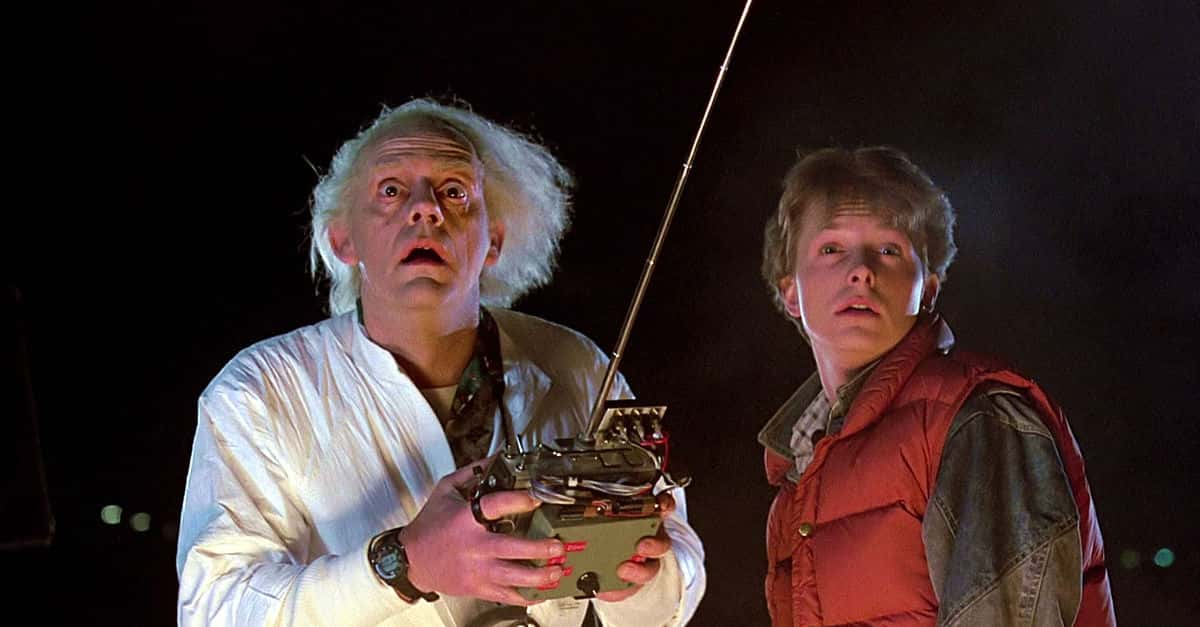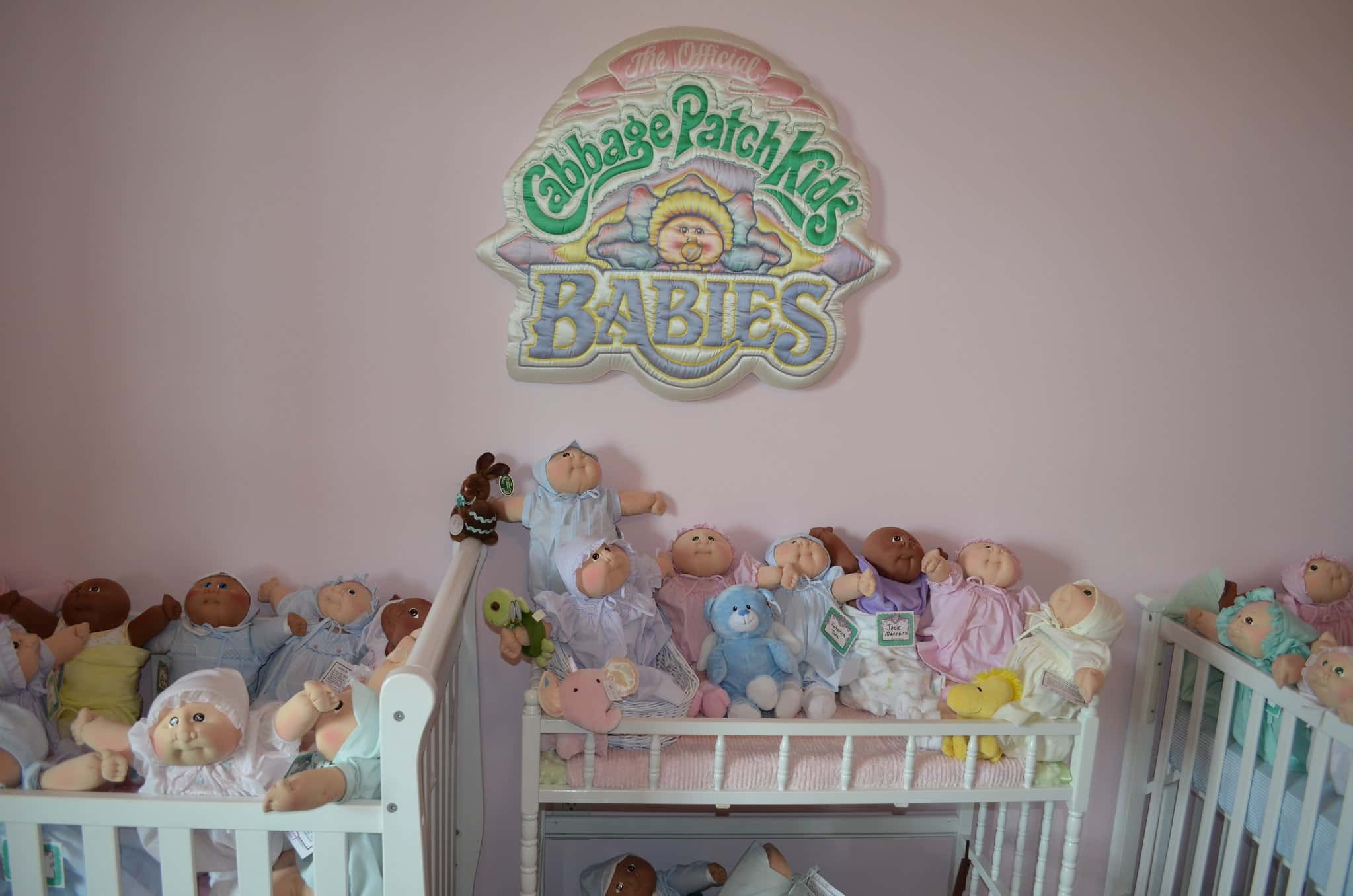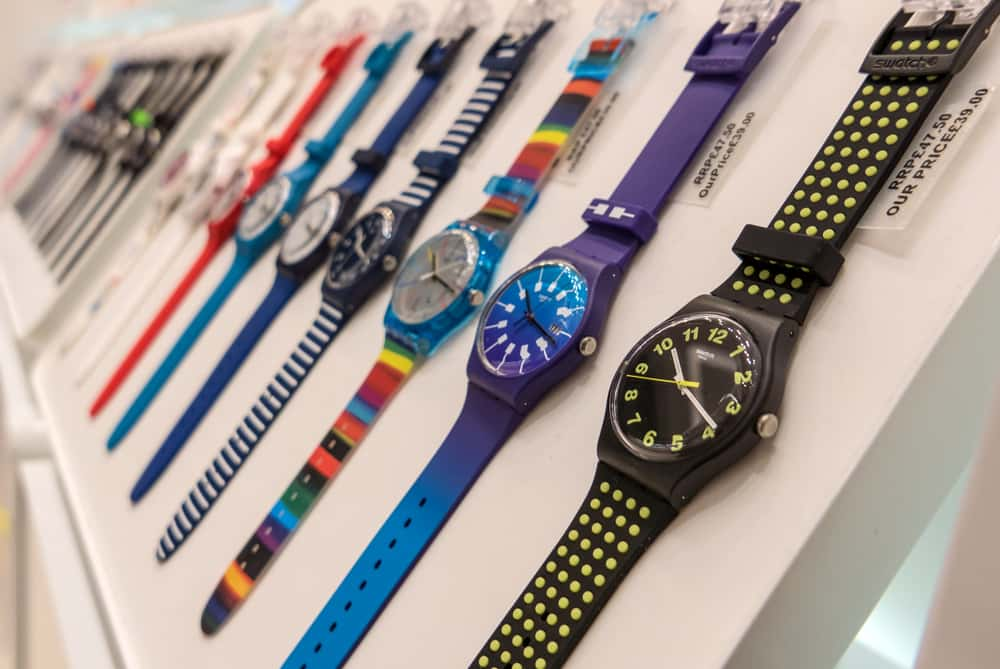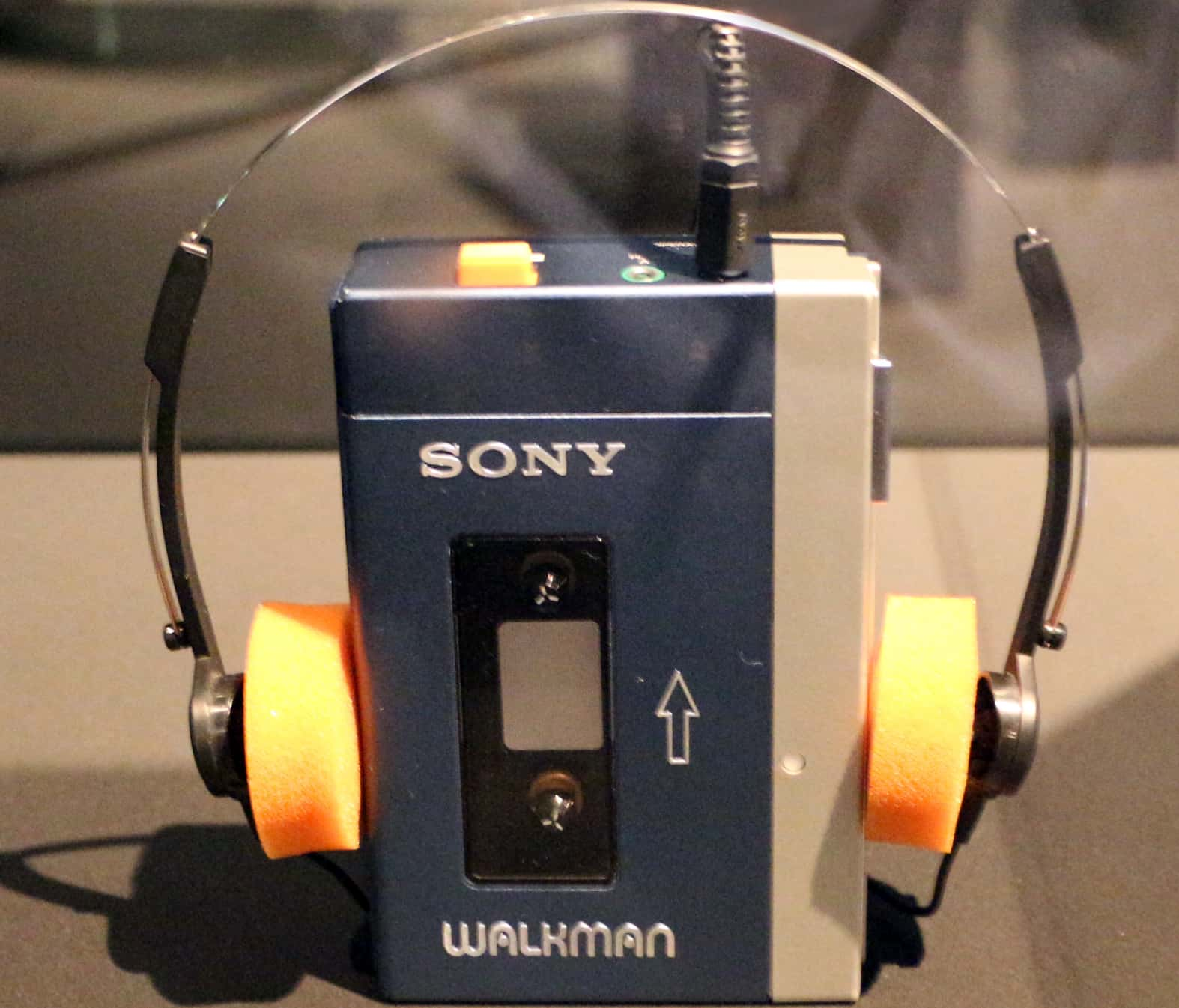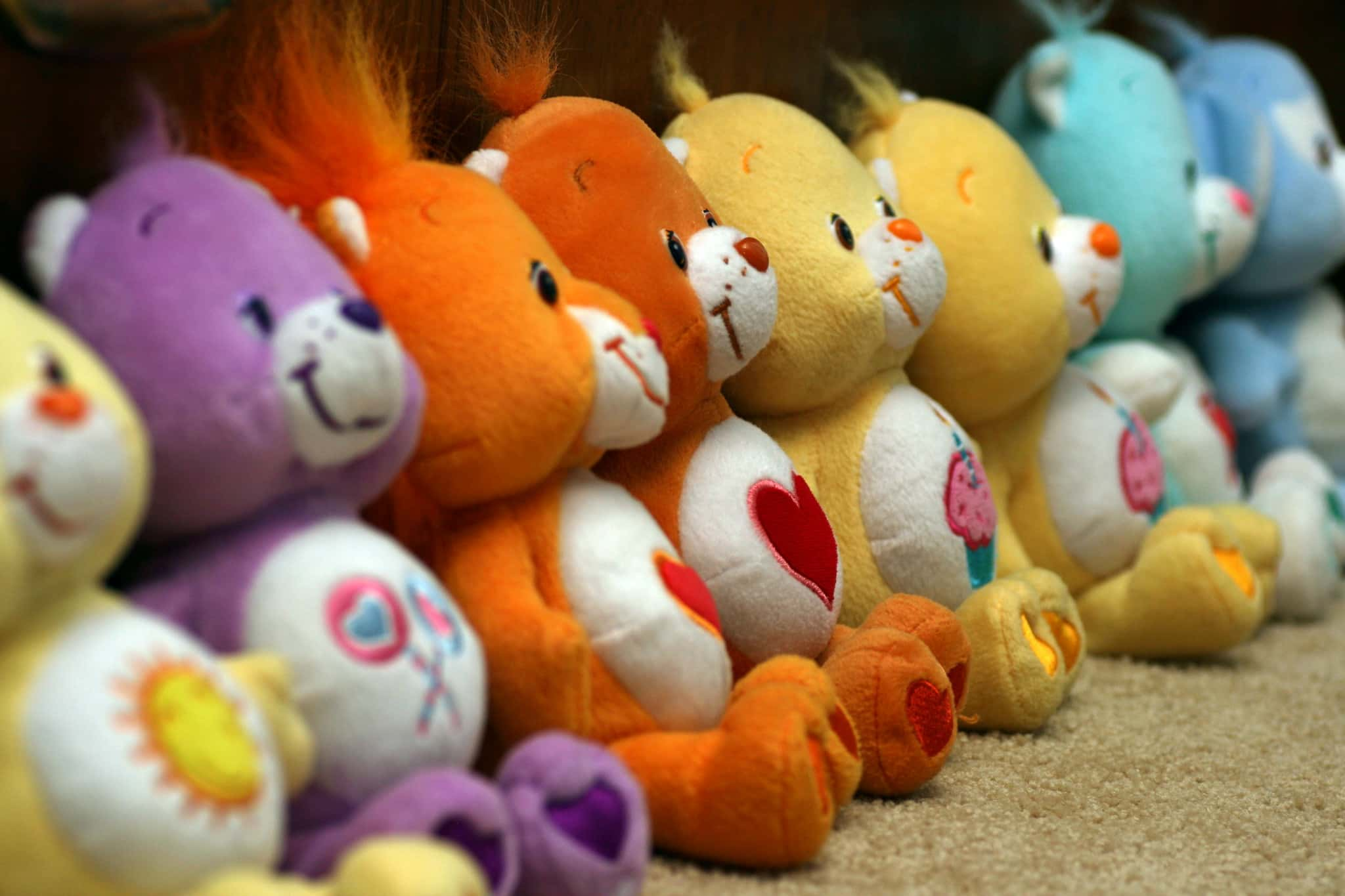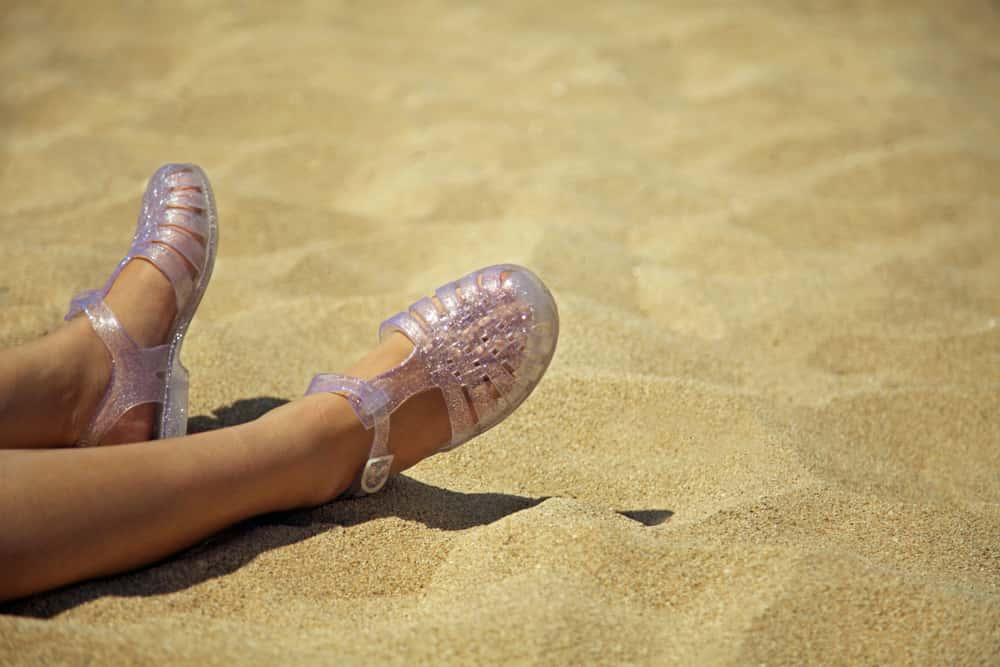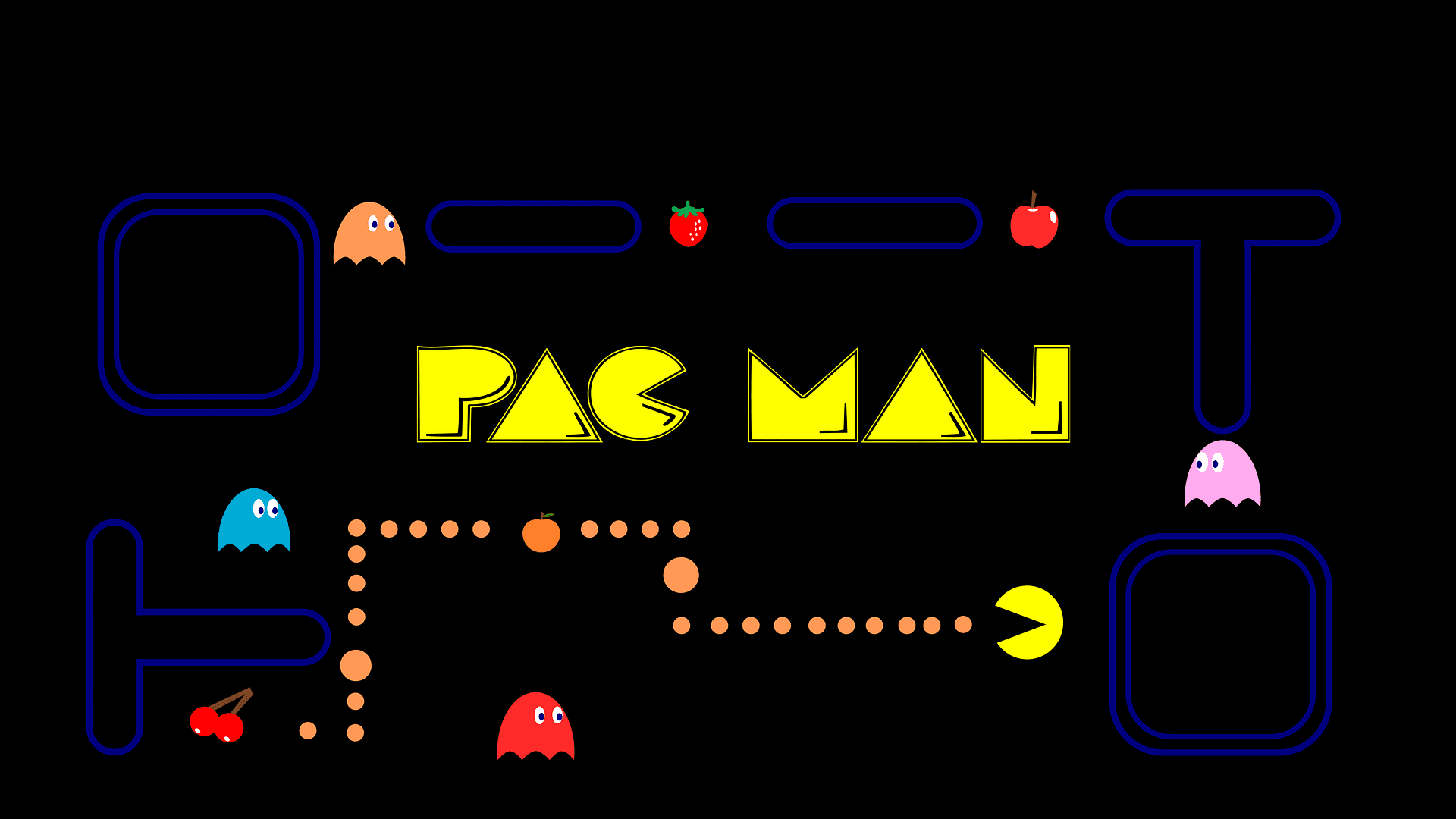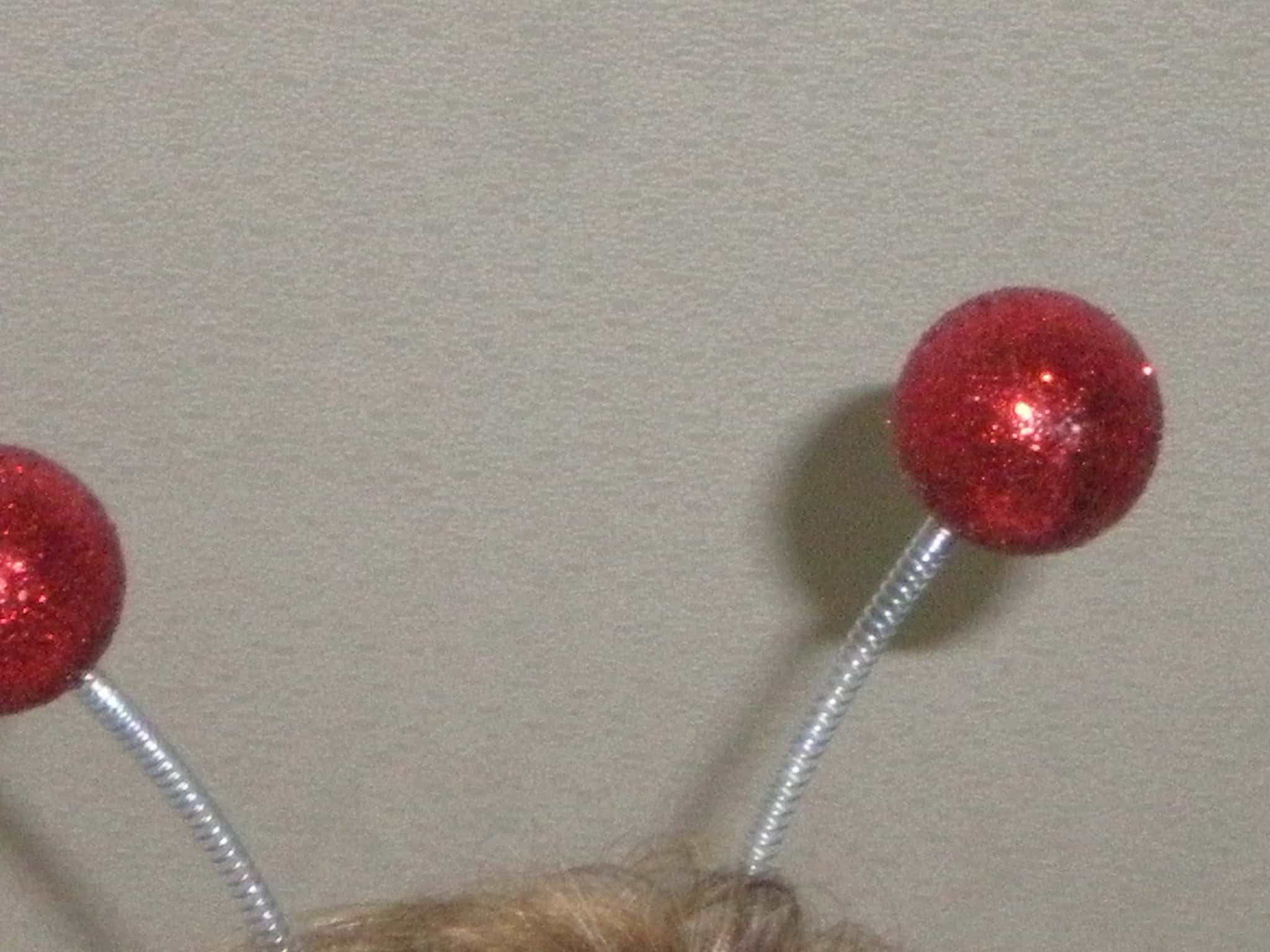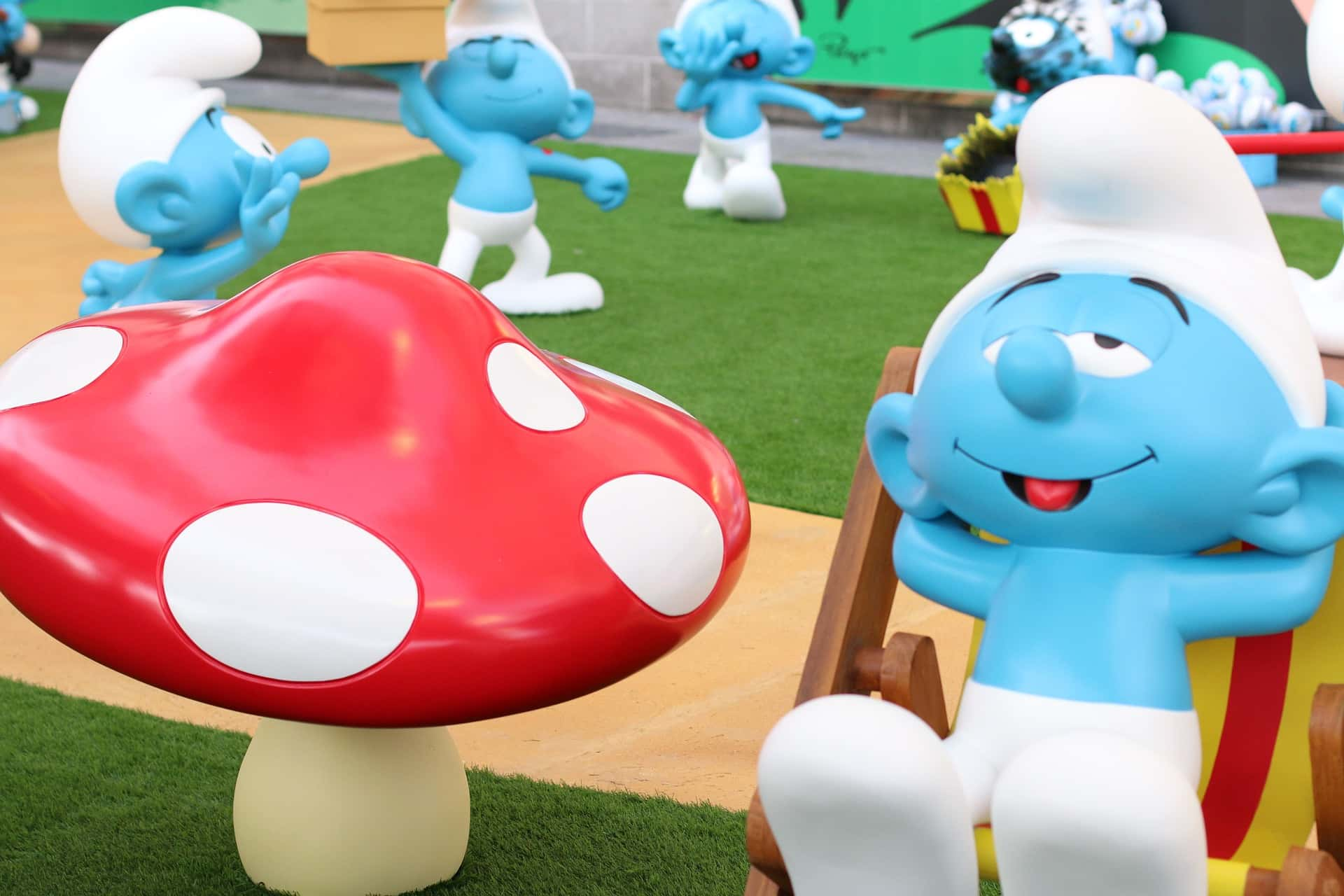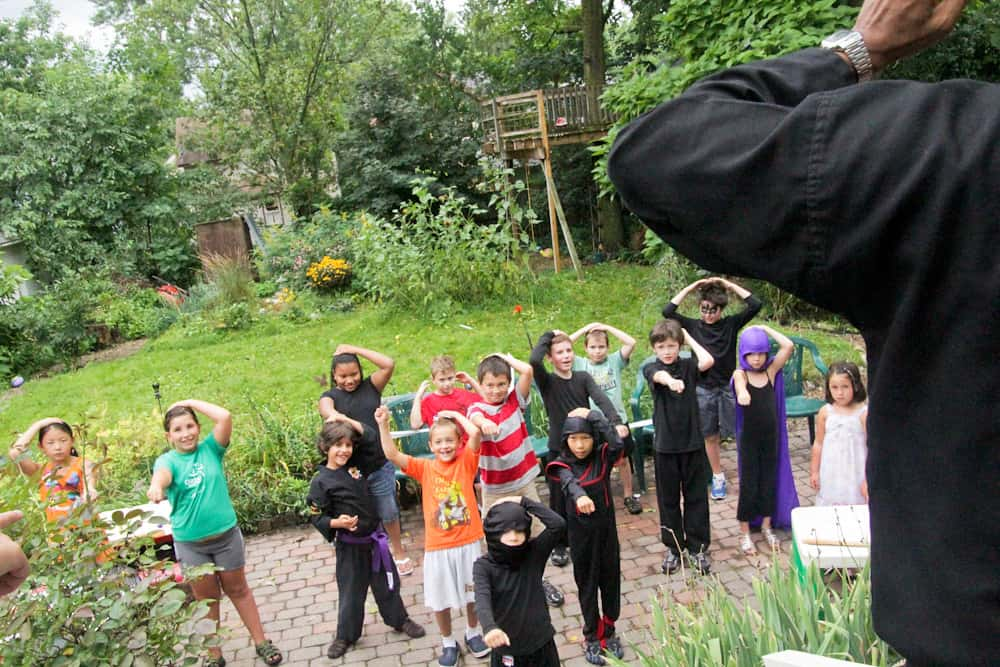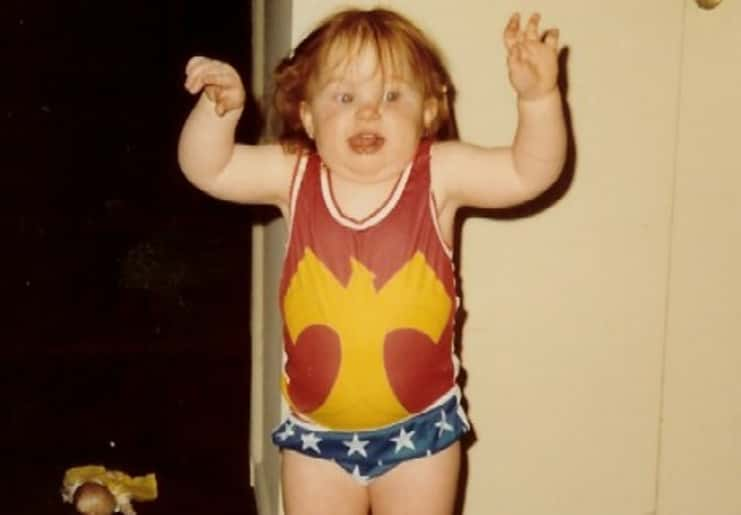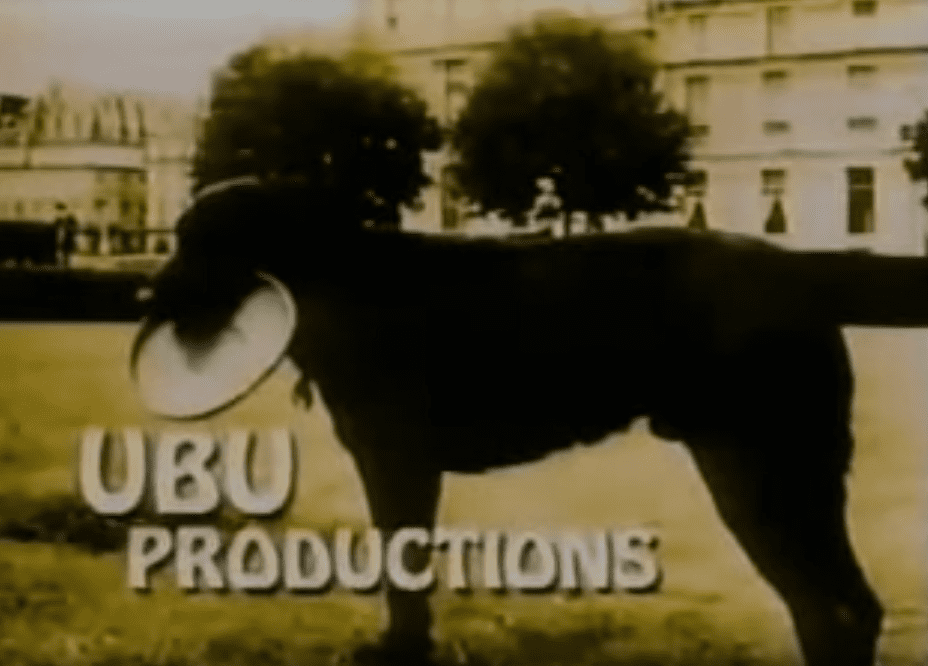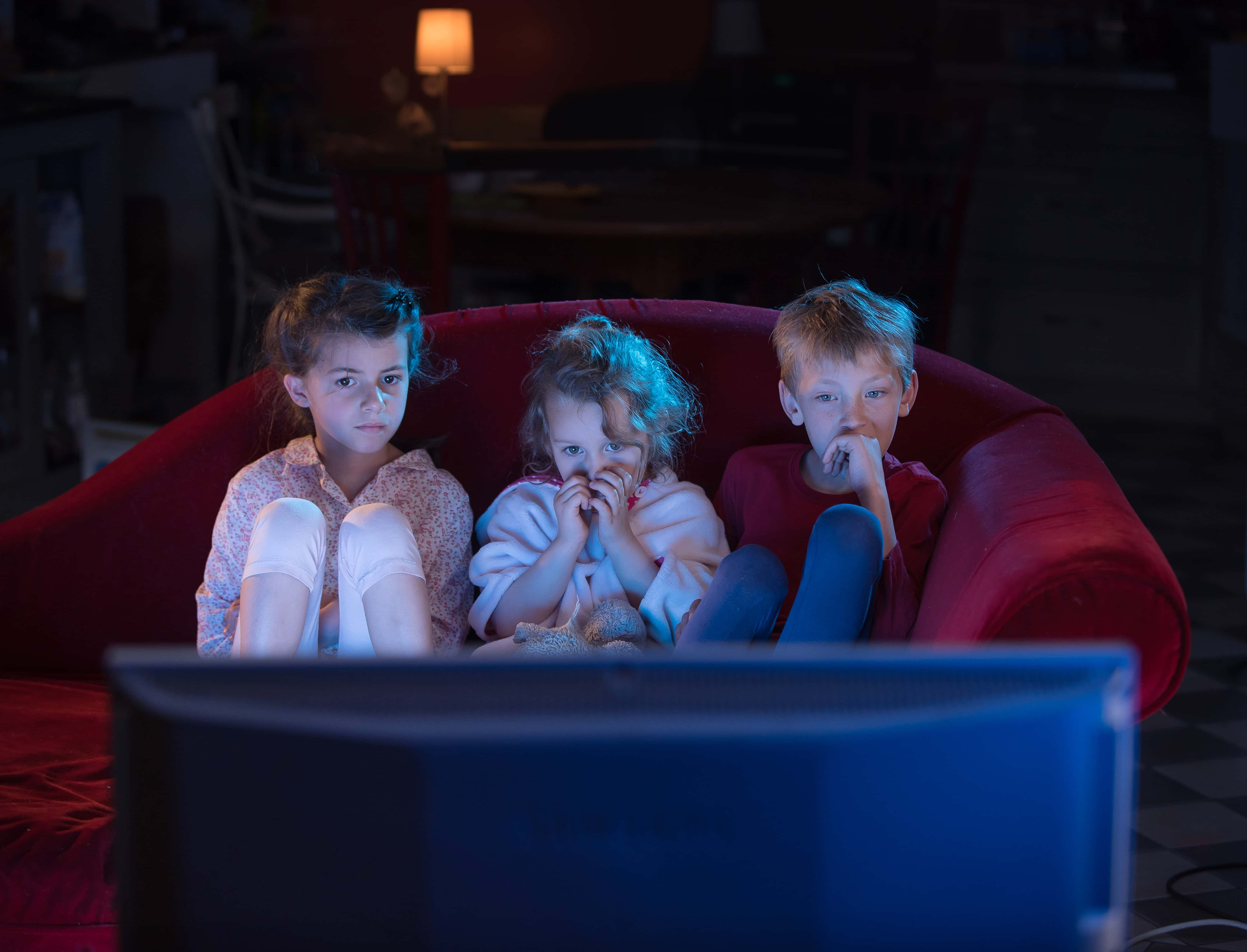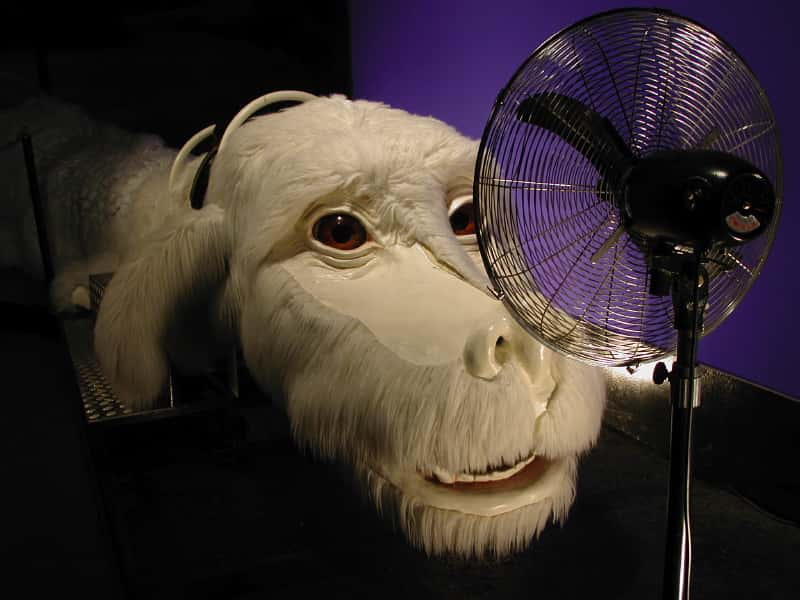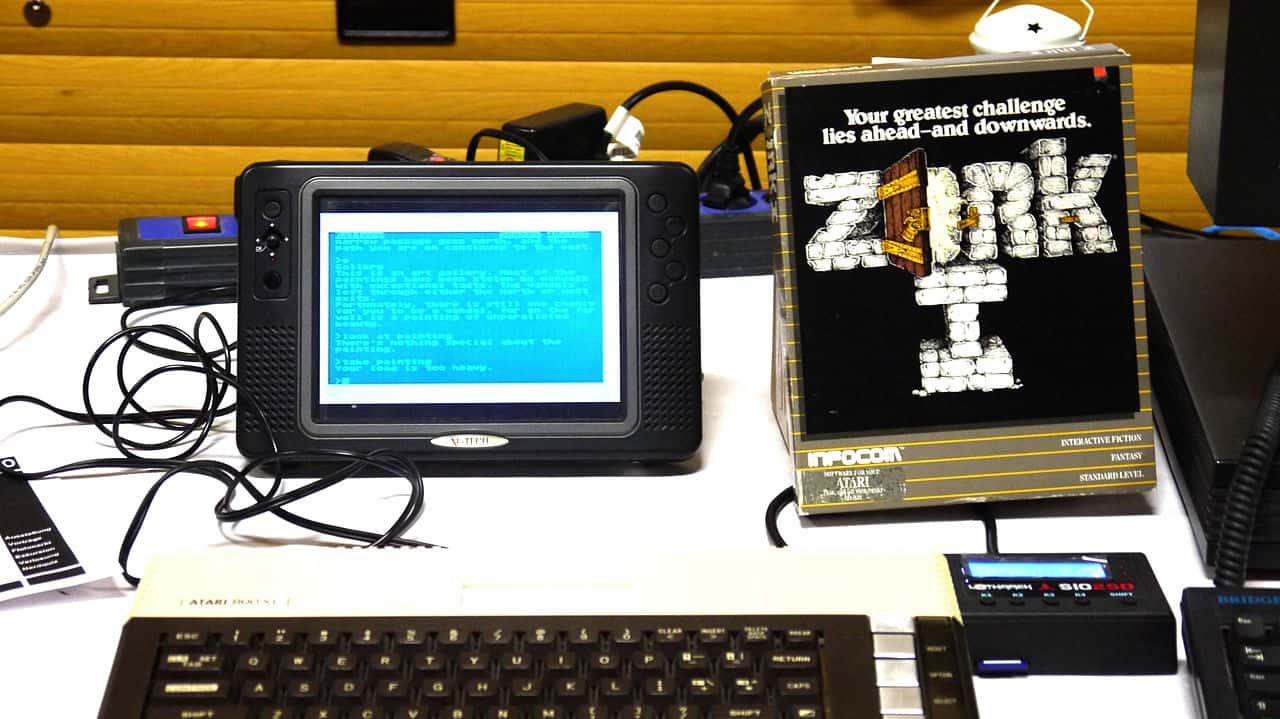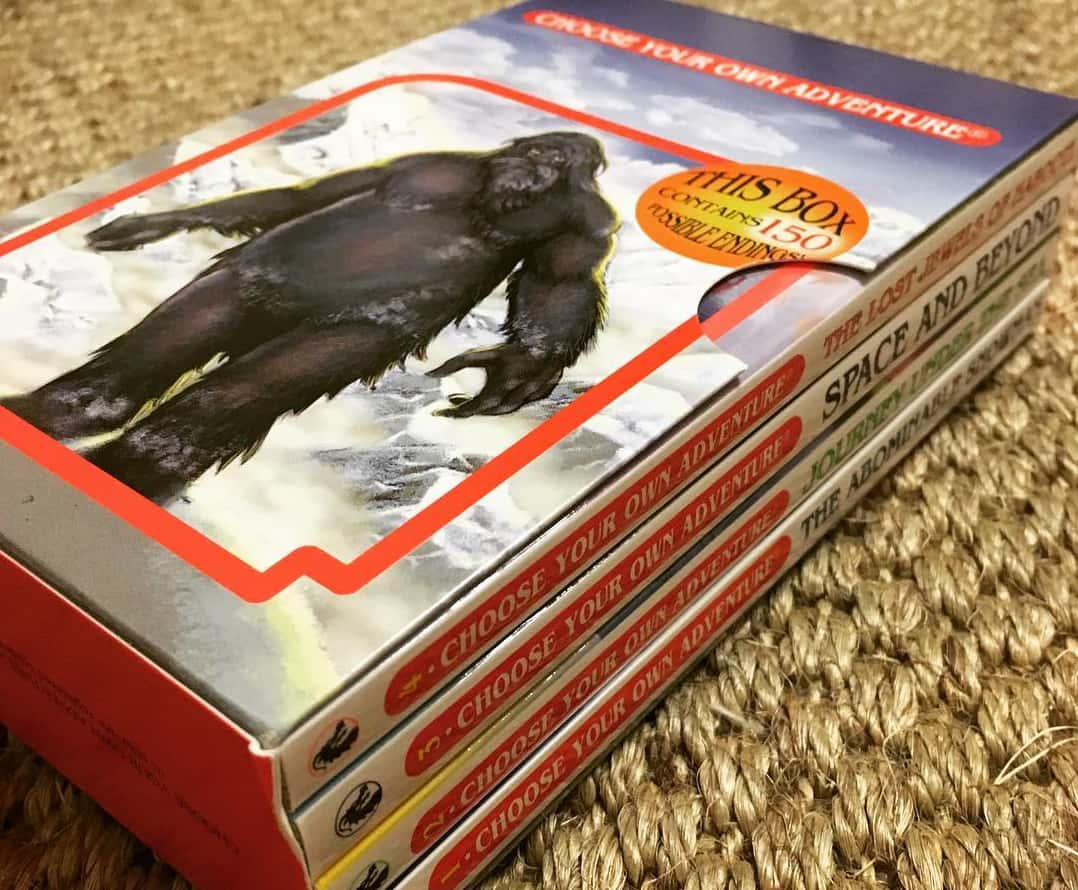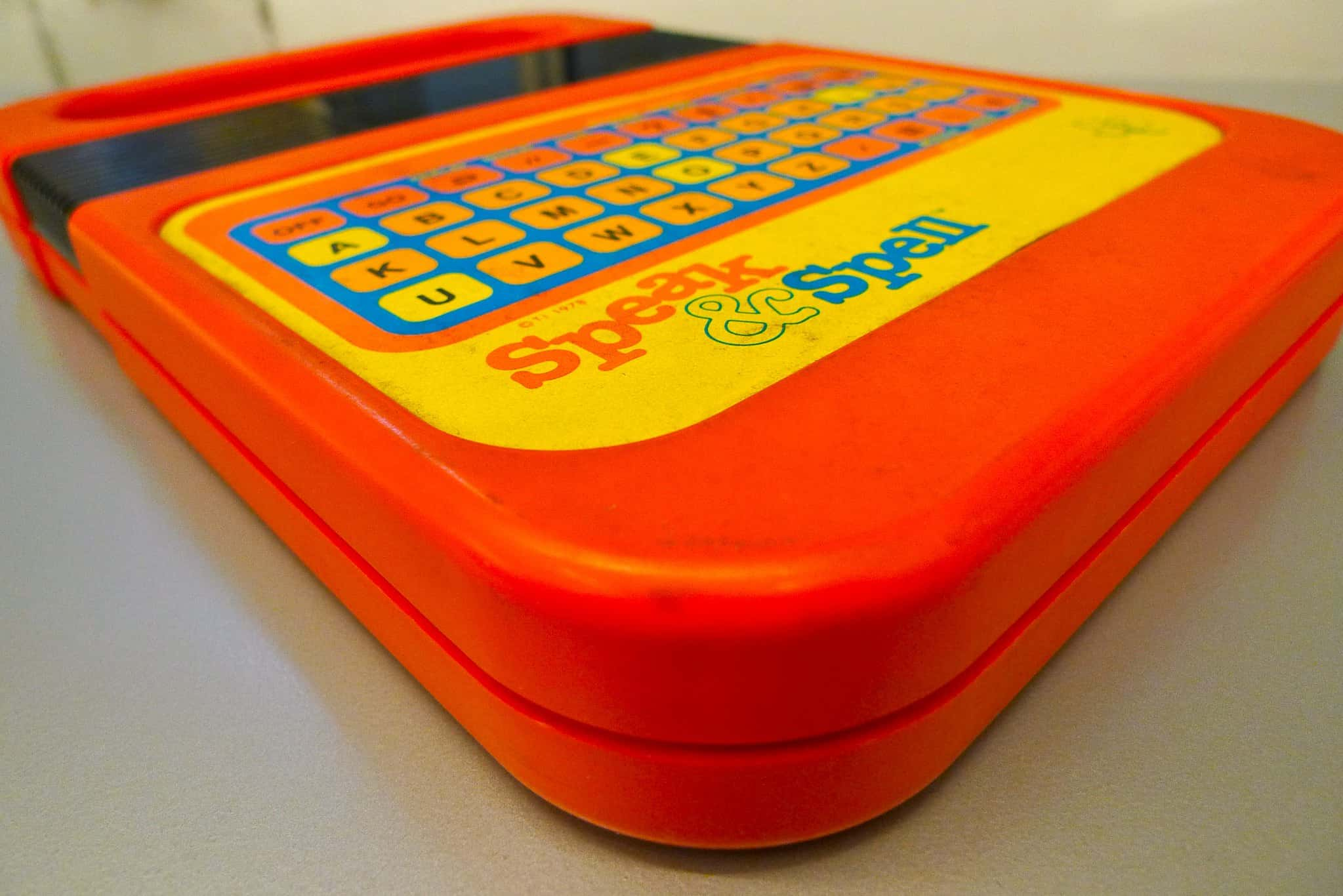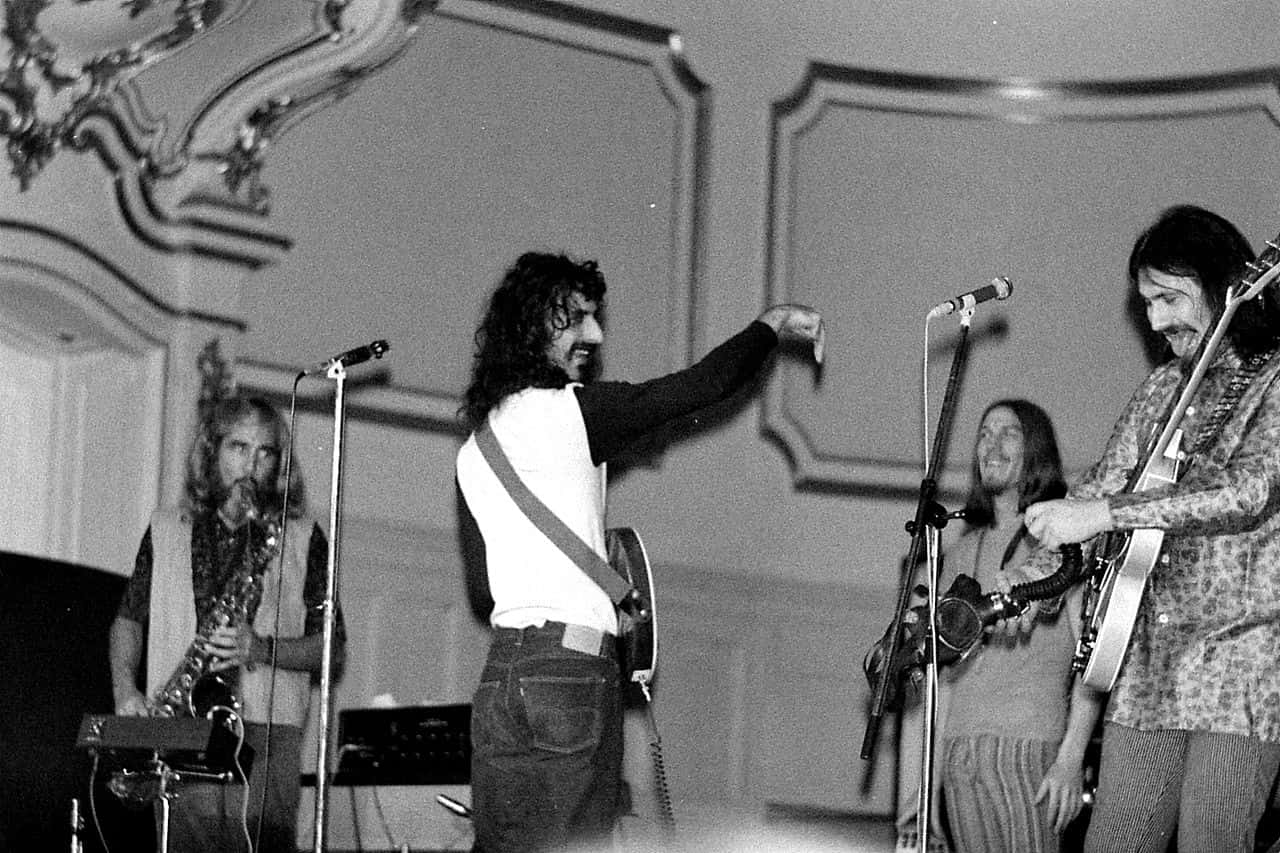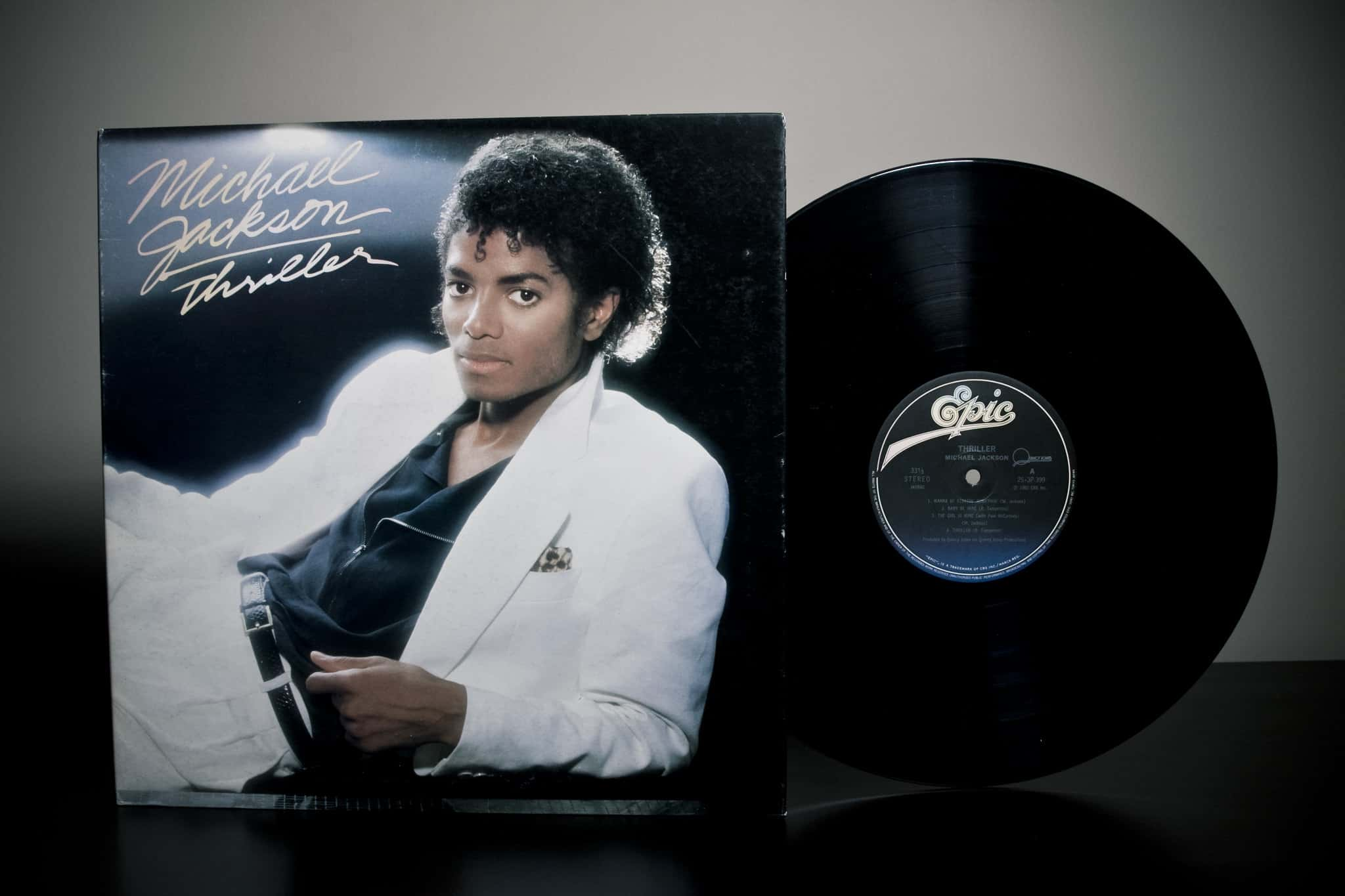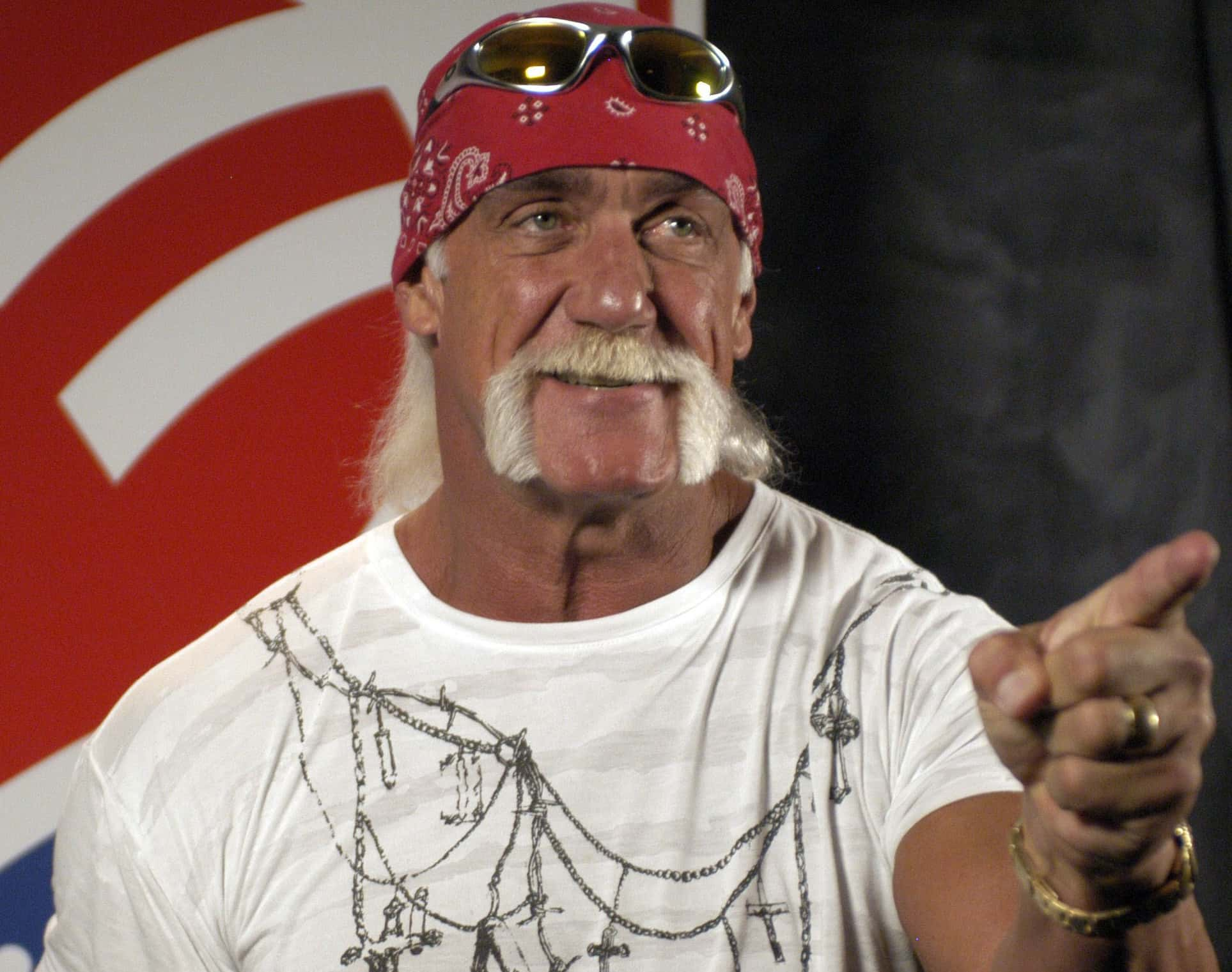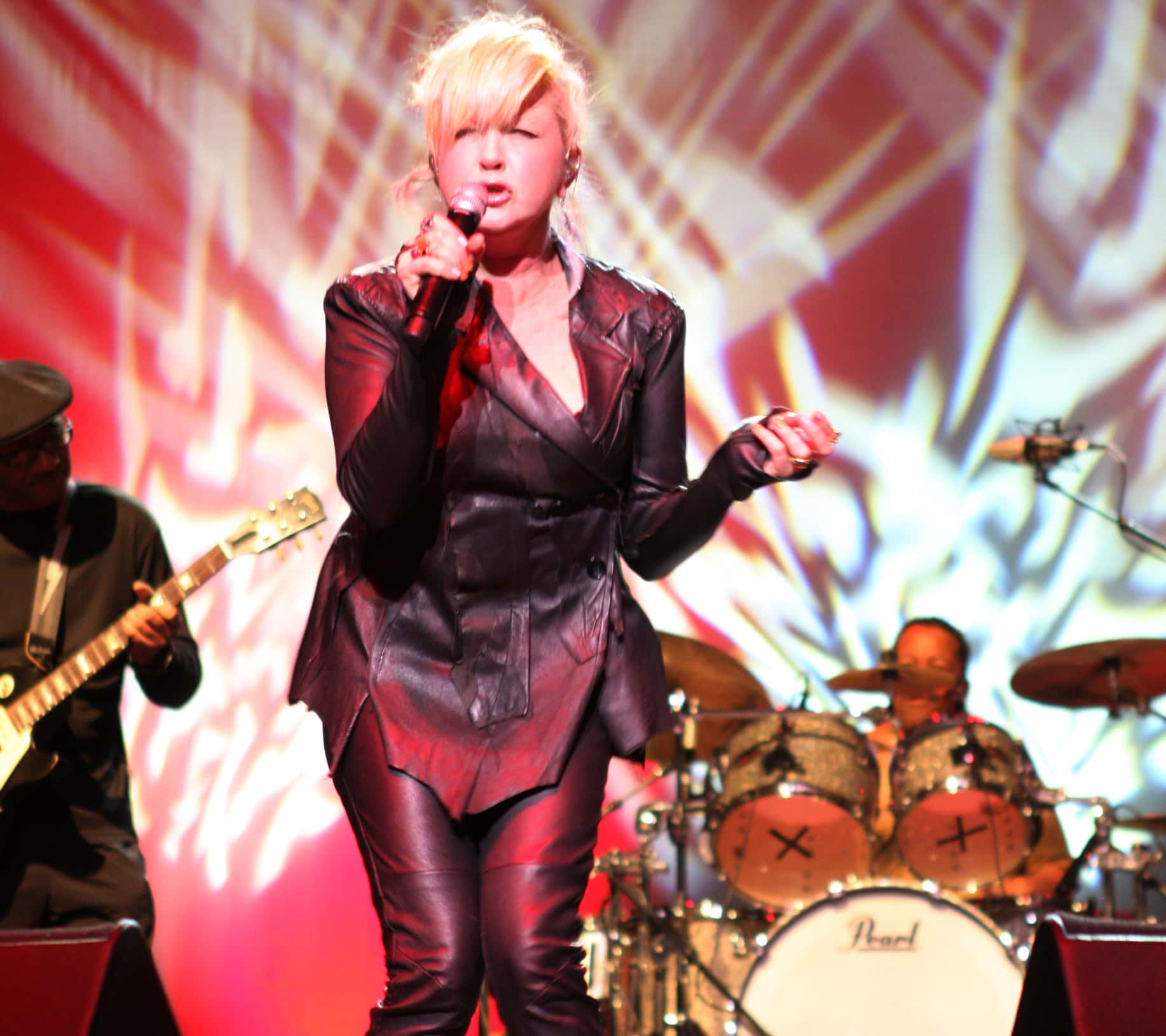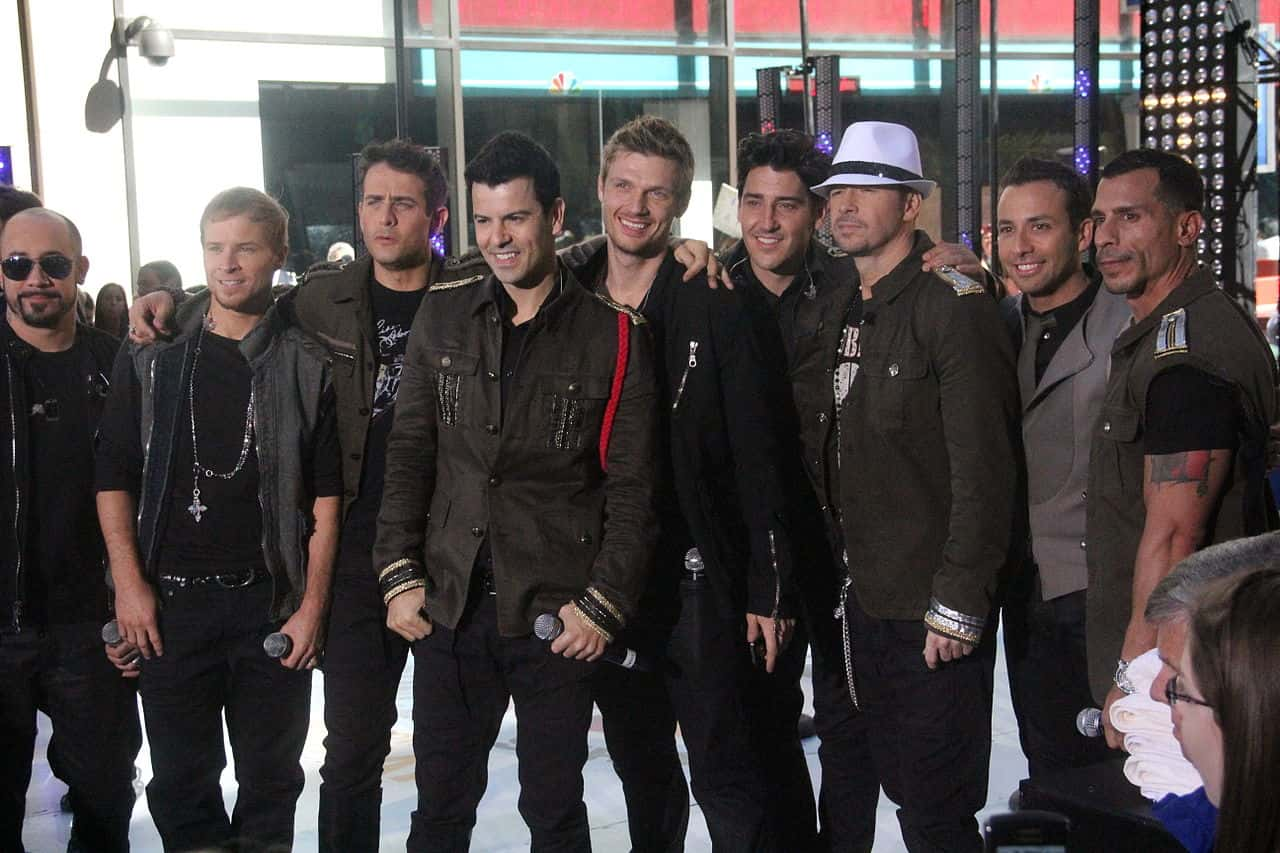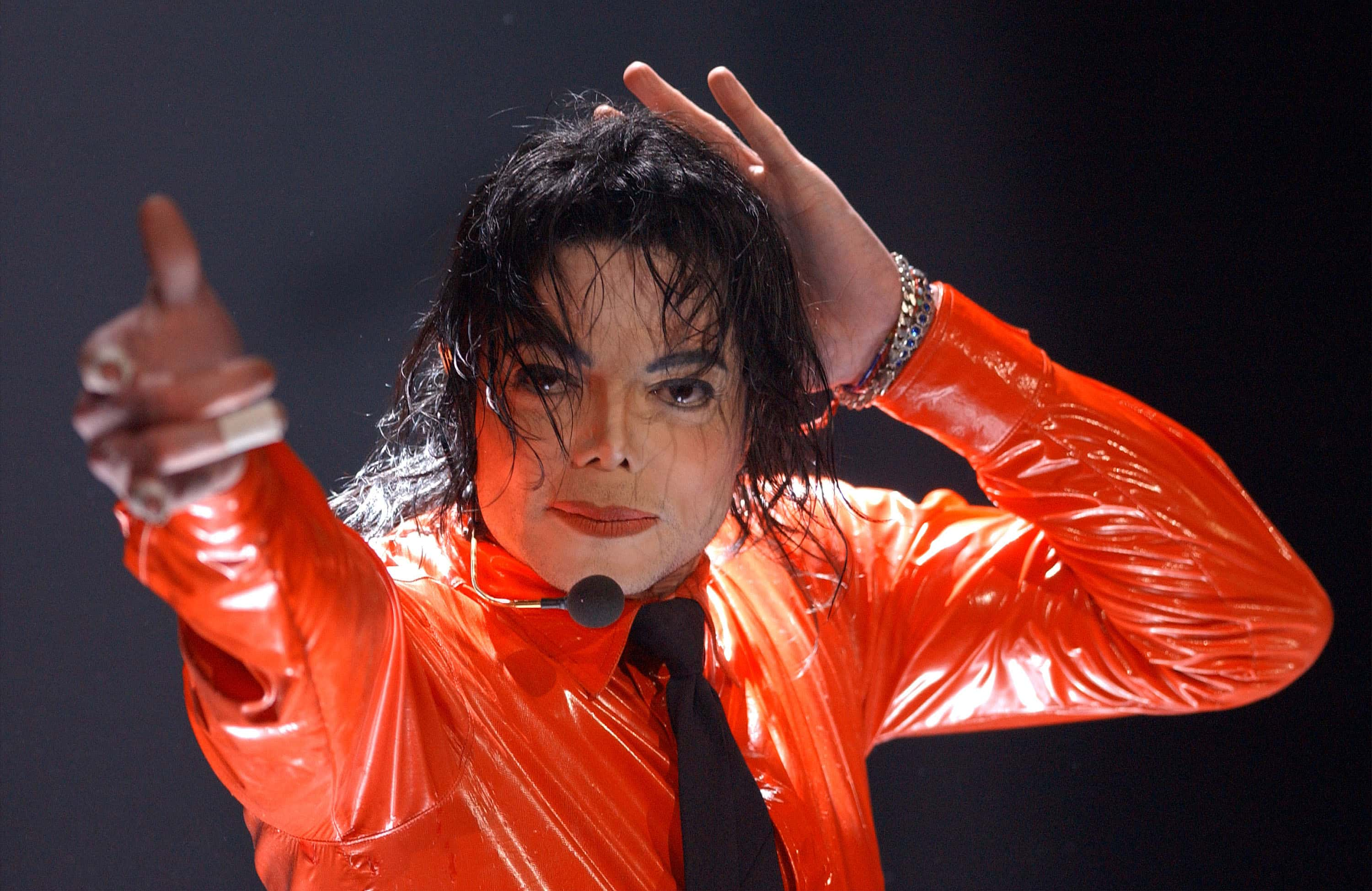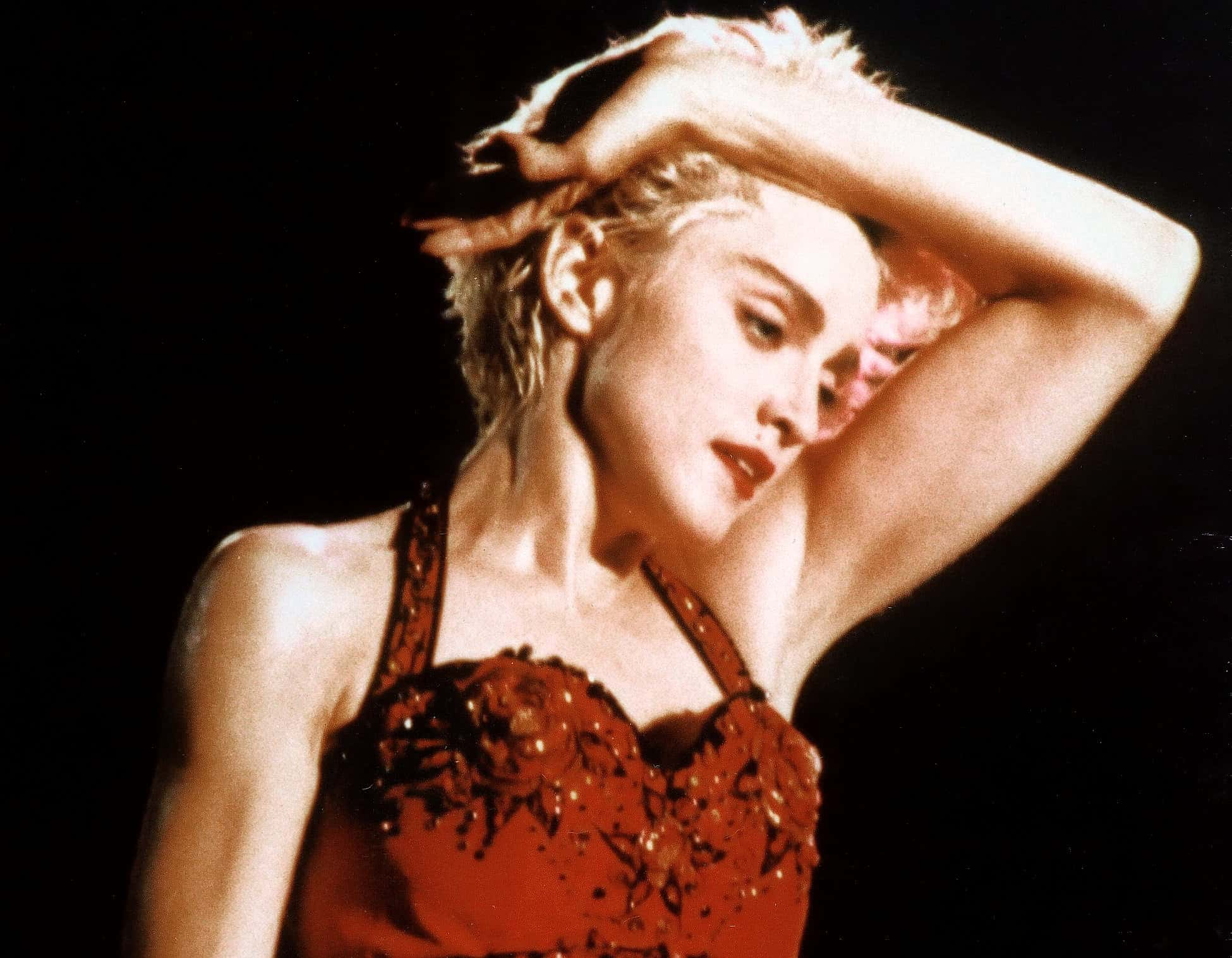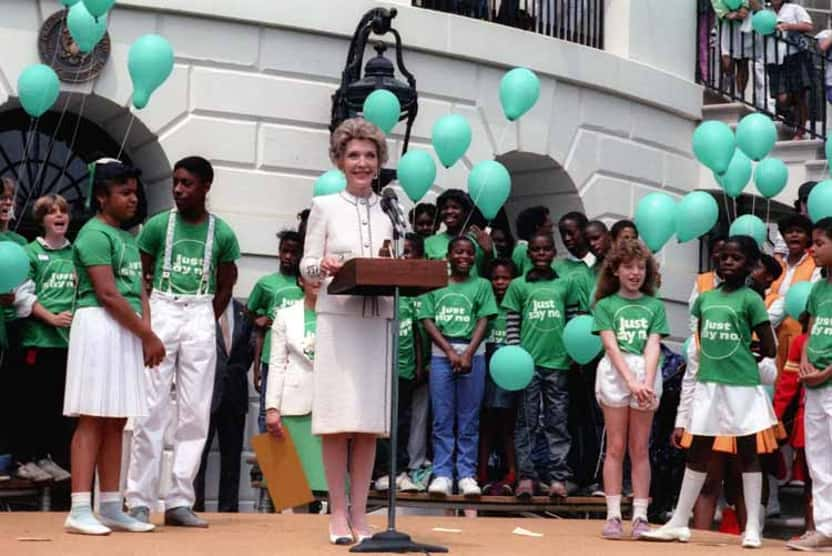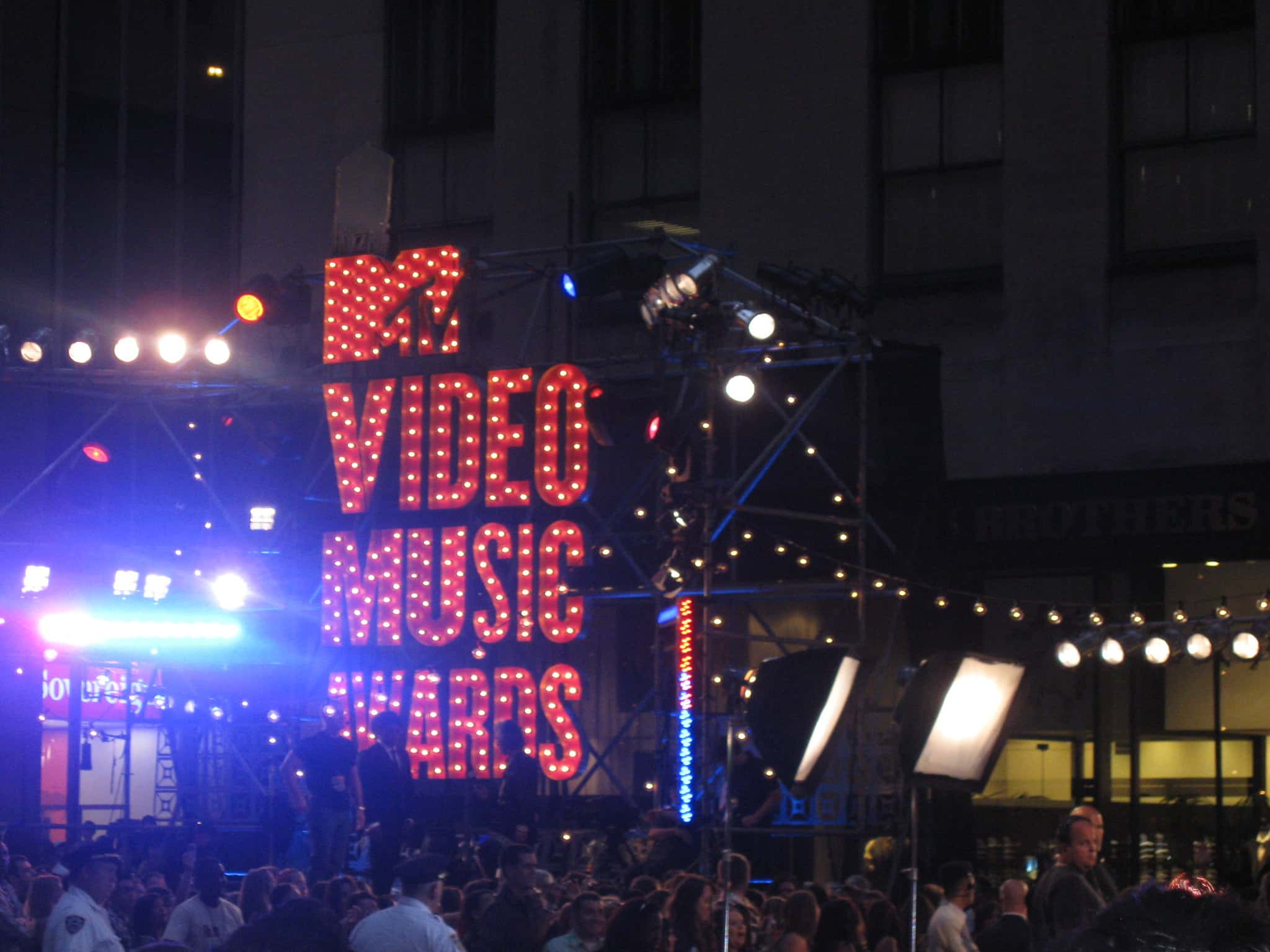"I want an official Red Ryder, carbine action, two-hundred shot range model air rifle!" —Ralphie Parker in "A Christmas Story" (1983)
Childhood in the ‘80s was much different than it is now. Kids who grew up in the ‘80s remember things like rubber bracelets, Cabbage Patch Kids, the first video game console, tween book series, The Goonies, and Alf. They grew up with computers but not the internet, the original Transformers toys, VCRs and not PVRs, and Sony Walkmans that played tapes instead of MP3 Players. Below are 42 Righteous facts you’ll know if you were a kid in the 80s.
80s Facts
42. Growing in the Garden
Cabbage Patch Kids went from craze to frenzy in the early 80s and by 1983, 3 million dolls had been ‘adopted.’ The toy was a soft, sculpted doll with a vinyl head, fabric body, and yarn hair. The dolls had different hairstyles and outfits and came with a birth certificate and adoption papers. They became the most successful introduction of a doll in toy history, and were the must-have toy in Christmas of ‘83, and the demand resulted in outbursts of violence in retail stores from customers.
41. Read Me a Story
Reading Rainbow debuted on PBS in 1983 and was a half-hour TV show that encouraged children to read. Each episode had a different book and theme, and the story was often narrated by a celebrity reader. The show also featured a book review segment at the end, where children would give reviews of books they liked.
40. An Accessory and a Watch
The Swatch watch was a must-have accessory of the 1980s. They were designed to be casual and fun, and totally interchangeable. The straps were in different colors, and the watch faces had different designs. One popular trend was to wear multiple styles at the same time, sometimes as many as 6. By 1987, more than 10 million watches had been produced, including scented ones.
39. A Puzzle or a Toy
The Rubik’s Cube is a six-sided, multi-colored cube puzzle that dominated the 1980s. Each of the puzzle’s six faces is covered by 9 stickers of six solid colors. To solve the puzzle, the sides have to be turned to return to make the faces one solid color. There were over 43 quintillion patterns, and by 1982, despite reaching sales of over 100 million, few had been solved. Beginning in 1982, Rubik’s Cube Championships were held in the Budapest, and people competed to see who could solve it the fastest. The cube was so popular that it appeared on T-shirts, posters, and board games, and even had its own children’s TV show. To date, more than 300 million cubes have been sold.
38. Mario Invasion
In the early ‘80s, the Atari 2600 video game console was a smash hit with the release of games like Space Invaders and Breakout. In 1985, Nintendo arrived on the scene with legendary games like Super Mario Brothers and Legend of Zelda, blowing other, more primitive gaming systems out of the water. In 2016, Nintendo released the NES classic edition which is a miniaturized version of the original ‘80s console that comes with 30 preinstalled classic games. It was an instant success, and Nintendo plans to bring them back later in 2018.
 Wikimedia Commons, Dhscommtech
Wikimedia Commons, Dhscommtech
37. Original iPod
Kids today listen to music on Apple iPods or through streaming services, but in the 1980s, the Sony Walkman was the first device to make music portable. The Walkman worked on similar technology as cassette recorders and all you needed to have your music on the go was a pair of headphones and a couple AA batteries. In 1983, cassette tapes outsold records for the first time, largely in thanks to the Walkman.
36. Colourful Bears
The Care Bears started out as illustrated artwork in 1981 that was to be used on greeting cards. In 1983, they were turned into a line of plush teddy bears, and the Care Bears appeared in their own TV specials, series and feature films between 1983 and 1988. Each bear was a different color, and had a symbol on its chest that denoted its personality. The original bears included Bedtime Bear, Tenderheart Bear, Share Bear, Cheer Bear and Wish Bear, but more bears and the spin-off Care Bear Cousins were created later on. Between 1983 and 1987, over 40 million Care Bears were sold, over 70 million greeting cards were printed, and over 1 million parents got really sick of pastel colors.
35. Defining a Genre
Starting in 1984, filmmaker John Hughes wrote and directed a number of movies for teens about teens, but that also appealed to adult audiences. Beginning with Sixteen Candles, and The Breakfast Club, and leading up to Ferris Buller’s Day Off, his movies spoke to the generation of kids who were coming of age. Those movies also made stars of actors such as Molly Ringwald, John and Joan Cusack, and Emilio Estevez, who collectively became known as “The Brat Pack.”
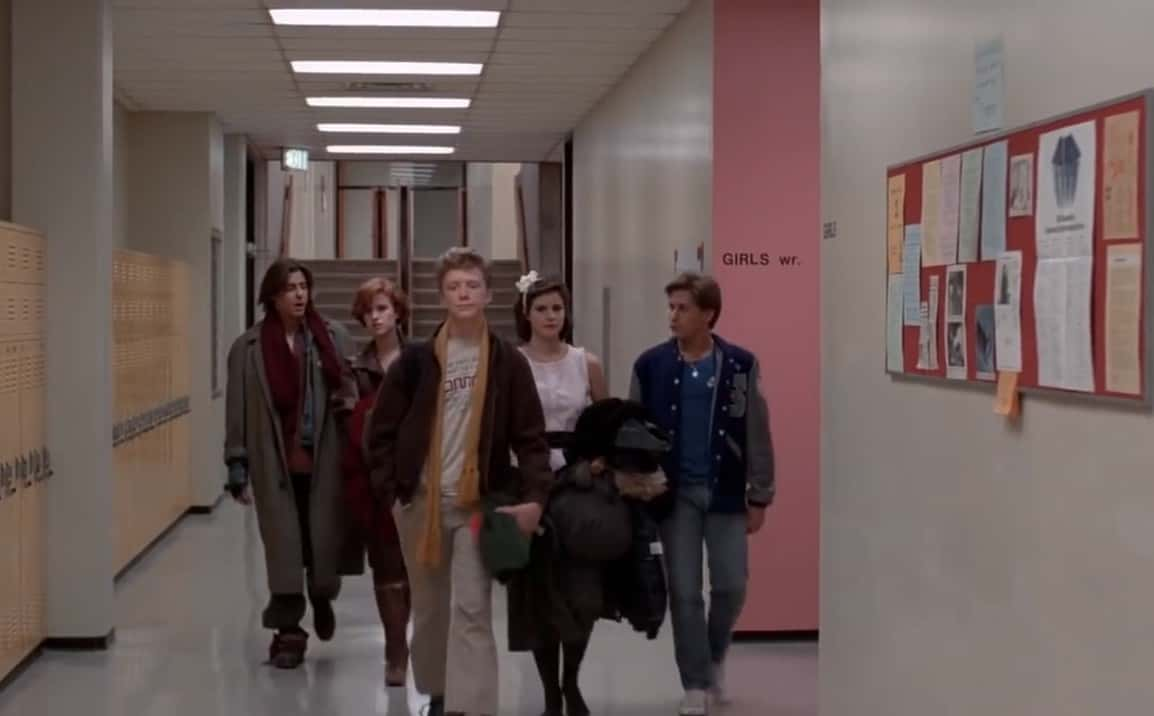 The Breakfast Club, Universal Pictures
The Breakfast Club, Universal Pictures
34. Animated Sex Symbol
In 1988, the hybrid live-action/animated movie Who Framed Roger Rabbit introduced one of the most popular animated sex symbols of all time: Jessica Rabbit. She was the human-form toon wife of comic strip star Roger Rabbit and had the distinctive voice of Kathleen Turner. She was the stuff of dreams for many boys (and men) and even briefly had her own merchandise store on Disney’s Pleasure Island Night Club.
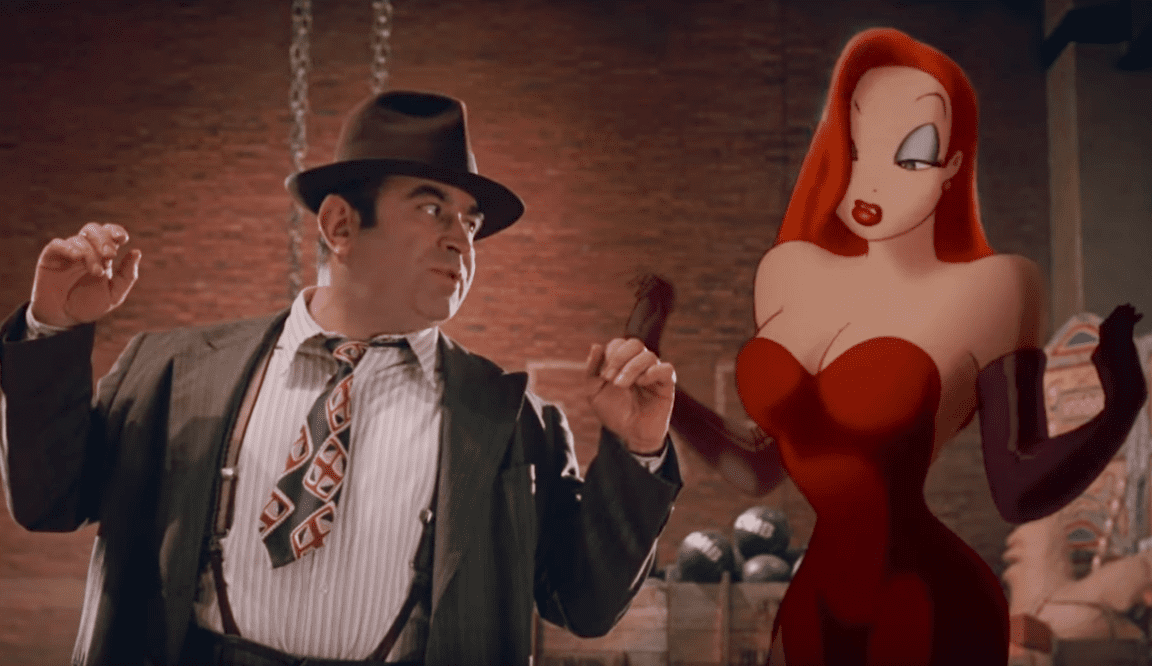 Who Framed Roger Rabbit (1988), Touchstone Pictures
Who Framed Roger Rabbit (1988), Touchstone Pictures

History's most fascinating stories and darkest secrets, delivered to your inbox daily.
33. Truly Outrageous
Jem and the Holograms was an animated series that ran from 1985 to 1988. The series centered on Jerica Benton, whose alter ego is Jem—the lead singer of a band called Jem and the Holograms. In the series intro, Jem inherits a hologram machine called Synergy, that creates realistic holograms of almost anything, and turns Jem and her friends into a glamorous rock band. Girls loved the glitz and the music, and the girls in the show were considered to be strong role models for tweens at the time.
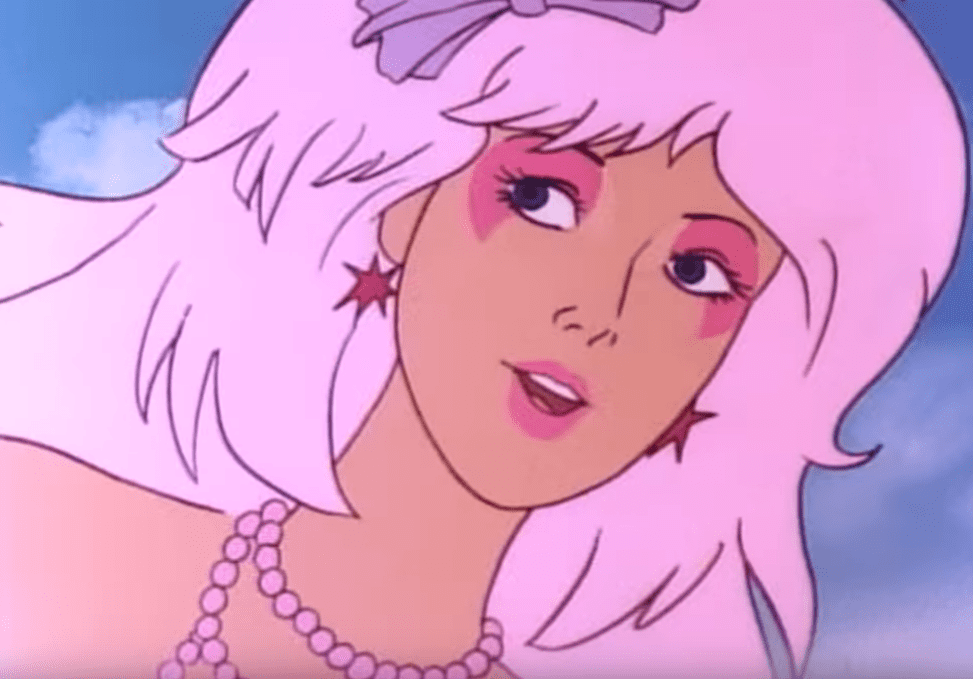 Jem (1985–1988), Marvel Productions
Jem (1985–1988), Marvel Productions
32. The Crocs of the ‘80s
Jelly Shoes were a popular fad in the early ‘80s. They were casual shoes made of PVC plastic that were first introduced at the 1982 World’s Fair, and then shown a year later at a shoe expo in Chicago. The buyer from Bloomingdales apparently saw the shoe display and ordered 2,400 pairs in 9 different styles for the store. The plastic construction also made them great water shoes for wearing around the pool, and they were extremely comfortable. The best part about Jellies was that they came in tons of styles (including glitter), and were super cheap, so it wasn’t uncommon for kids to have multiple pairs in their closets.
31. Symbol of Friendship
‘80s girls will remember giving out friendship pins to all of their friends. They were made by threading different color beads onto safety pins, which girls then attached to the laces of their shoes. They were inexpensive and easy to make, and having lots meant you had lots of friends. There was no rule to what kind of colors or pattern to use, but rearranging the beads on a pin someone gave you was a big no-no!
30. Original Gaming Mascot
Pacman, introduced in Japan in 1980, is one of the most iconic video games of all time. While most games of the time were variations on Pong or space shooter games, Pacman created a whole new genre of game. The game was designed to appeal to both boys and girls, and by 1982, there were an estimated 30 million players across the United States. Pacman was also the first licensing success for the industry, spawning a cereal, a song, an animated TV series, and a board game.
29. Martian Antennae
In 1981, Stephen Askin invented the deely bopper headband, which was inspired by the “Killer Bees” sketch on Saturday Night Live. Deely boppers were basically headbands with glittery items like hearts and stars attached to two spiral wire antennae. Adults generally thought they looked silly, but it was a must-have item for kids under 13.
28. Those Little Blue Creatures
From 1981 to 1989, The Smurfs was a staple of Saturday morning cartoons. The show was based on a comic created by the Belgian artist Peyo called Les Schtroumpfs. The Smurfs were named for their personality traits (Grumpy, Jokey, Brainy, etc…) and they stood three apples high. The series was created when an executive for NBC saw his daughter playing with a plush Smurf doll, and thought it would make a good cartoon. “The Smurf Song” or “La La Song” was developed by Hanna Barbera for the TV series, and has since been used in Smurfs video games and movies.
27. Playground Fun
Back in the 80s, there were a variety of playground games that were popular with kids. The games had simple rules, and usually involved listening and following instructions. In the game Simon Says, whoever was playing “Simon” would order their friends to do a variety of actions beginning with the phrase “Simon Says.” If Simon didn’t say an action and you did it anyway, you were out. In the game “Mother May I” kids would ask Mother if they could perform an action such as hopping, skipping, or taking giant steps forward to get close enough to tap mother. If she said “yes you may,” you moved ahead. If you forgot to use the phrase, or moved without permission, you had to start again. Other popular games of the time included “Red Light Green Light,” and “What Time is it Mr. Fox?” which also involved a combination of call and response and tag.
26. A Super Hero Under Your Clothes
Underoos were a brand of underwear designed for kids that featured characters from DC and Marvel, Hanna-Barbera, and Archie comics. Character sets included Wonder Woman, Superman, Batman, and Spiderman, and are credited with empowering children and giving them confidence. What kid didn’t want a secret identity under their clothes?
25. Sit, Ubu, Sit
If you watched television in the ‘80s, you probably remember the phrase “Sit, Ubu, Sit. Good Dog!” at the end of popular sitcoms. The title card featured Ubu Productions Founder’s black lab Ubu holding a Frisbee and barking at his owner’s command. The original Ubu died in 1984, but his fame lives on.
24. We’ll Be Back After These Messages
During kids TV shows in the 1980s, whenever the program broke for a commercial break, the phrase “We’ll be back after these messages” would be shown on screen. This was to help kids tell the difference between TV shows and commercials.
23. Flying Dog Dragon
Falkor the Luck Dragon is a beloved character from the 1984 movie adaptation of Michael Ende’s book The Neverending Story. His body is 43 feet long, and he’s got the torso of a dragon, and the head, paws and tail of a dog. He’s wise and optimistic and acts as a guide to the movie’s hero Atreyu. Kids everywhere wished for a Luck Dragon of their own to ride. No toys were made at the time of the movie, but an Esty shop called Game Guardians has been producing a Falkor plush toy since 2015 and was met with huge demand.
22. Games Without Graphics
Text-based adventure games were popular with home computer users in the 1980s and were an interactive game that were driven by typed commands and control characters. The term refers to the fact that they were originally text-only games without graphics, but in the late ‘80s, graphical text adventures were accompanied by still graphics. The largest producer of these games was Infocom, who created Adventureland, Zork, and Hitchhiker’s Guide to the Galaxy.
21. You Decide!
The Choose Your Own Adventure series of books was one of the most popular series of the 1980s. They were inspired by the original role-playing games and were interactive in that they contained dozens of endings which the readers could choose by following different branches in the story. Between 1978 and 1998, the series sold 250 million copies.
20. It Talks!
Speak & Spell was a hand-held computer that was part of a trio of talking toys that included Speak & Read and Speak & Math. It was released in 1983 and was designed to help children learn how to spell through games and It was the first time an educational toy used speech that wasn’t pre-recorded on a tape or a record turntable.
19. Like, Totally!
Valspeak was a term that described a way of speaking that originated in California and was a combination of surfer, hippie, and black street slang. The 1982 song “Valley Girl” by Frank Zappa and his daughter popularized the speech, making it a fad. Valspeak speakers use an inflection at the end of their voice making a statement sound like a question, and words like “totally”, and “for sure”, were added to sentences. Most impactful was the use of the word ‘like’ peppered throughout regular speech.
18. Kids Singing the Hits
Minipops was a TV show for kids that originally aired in the UK in 1983. The show was made up of tweens singing top 40 pop music hits and older classics, and the kids were dressed up to look like the original performers of the songs. Between 1982 and 1986, the Minipops released a number of albums, the first of which became the third highest selling album in Canada at the time. The show itself was the subject of controversy, garnering criticism for having kids sing songs of an adult nature, and for the sometimes racy costumes and heavy makeup.
17. I Pity the Fool
Mr. T gained fame in the ‘80s for his role as B.A. Baracus on the TV series The A-Team, and as Clubber Lang in Rocky III. The phrase “I Pity the Fool” was first uttered in the film and became his trademark phrase for the rest of his career. He used the phrase frequently in public appearances, but amazingly, never used it on The A-Team, as many believed.
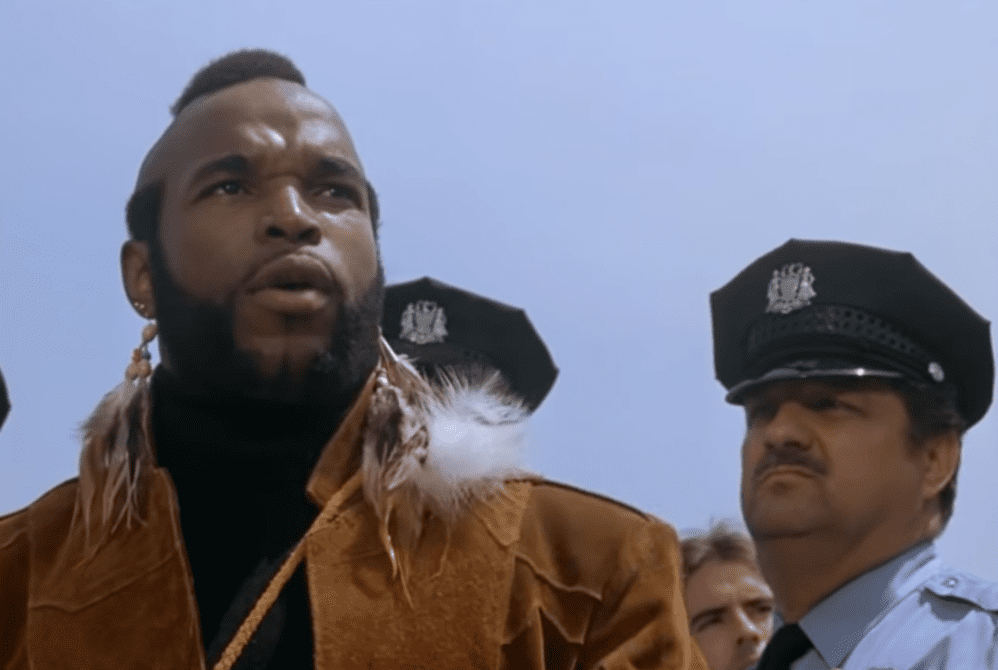 Rocky III (1982), United Artists
Rocky III (1982), United Artists
16. Master of the Universe
He-Man and the Masters of the Universe a popular line of action figures by Mattel, featuring He-Man, the most powerful man in the Universe, Skeletor, his arch enemy, and Battle-Cat, He-Man’s tiger-like companion. The boxes for the figures had a brief description of the character printed on them and were accompanied by mini-comics that further explored the universe. In 1983, an animated series based on the characters was developed, and it ran for 65 episodes. The show was revolutionary for breaking past earlier barriers posed by TV censors, and for the first time could show a superhero who was able to hit bad guys. A spin-off series She-Ra, Princess of Power featured He-Man’s sister and crossed over with the He-Man characters.
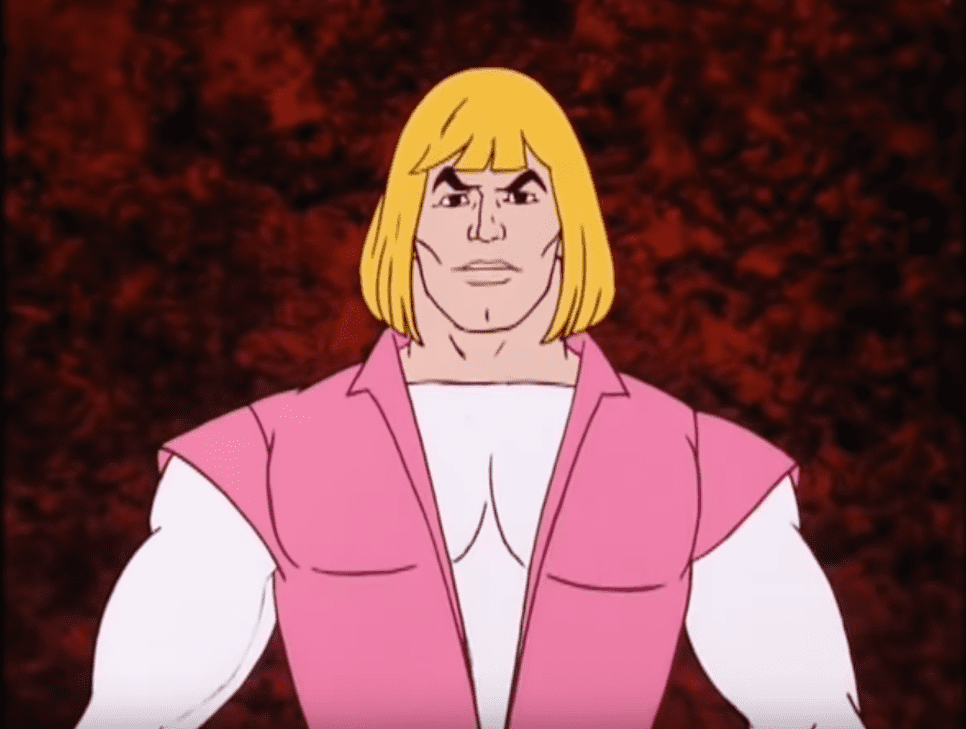 He-Man and the Masters of the Universe (1983–1985), Mattel
He-Man and the Masters of the Universe (1983–1985), Mattel
15. Misfit Adventure
In 1985, Stephen Spielberg and Christopher Columbus wrote and produced The Goonies, which was about a group of misfit kids who lived in an area referred to as the Goon Docks. The story involves the kids trying to save their neighborhood from destruction and going on an adventure looking for buried treasure. The movie became the archetype for tween adventure movies and has developed a cult following in the years since. Despite the film’s success, to this day, it has never gotten a sequel.
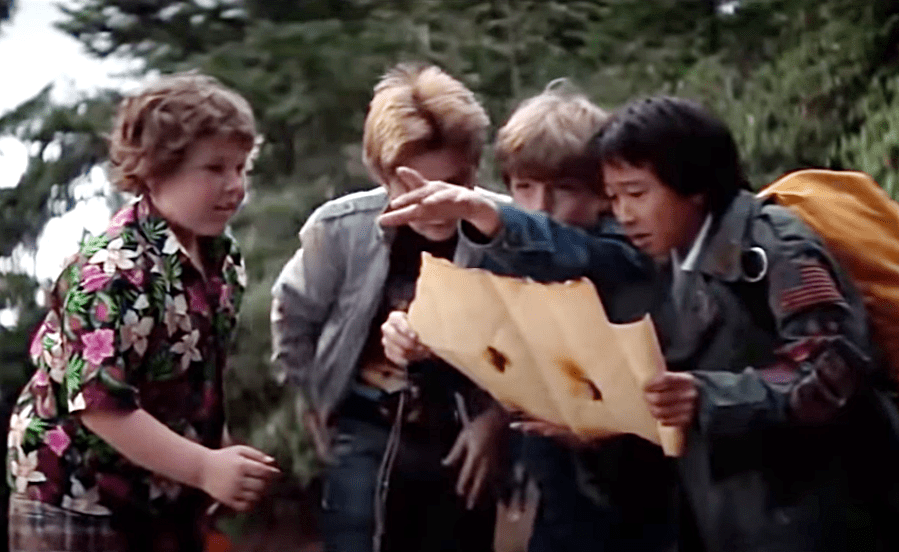 The Goonies (1985), Warner Bros.
The Goonies (1985), Warner Bros.
14. Music Video or Movie?
In 1983, Michael Jackson released a 13-minute horror music video for his song “Thriller,” which leaned more towards a short film than a traditional music video. It first aired on MTV on December 2, 1983, and is the most-downloaded Halloween hit of all time. It’s also seen as being the most influential pop music video of all time and was the first music video to be inducted into the National Film Registry of the Library of Congress.
13. One to Grow On
Kids watching Saturday morning cartoons in the 1980s will remember the “One to Grow On” public service announcements. The name was taken from the idea of the extra candle on the birthday cake being “one to grow on” and featured a child with an ethical dilemma. An actor would then come on screen and explain how to solve the problem. After the explanation, the child would either fix the situation or own up to the problem. The PSAs ran between 1983 and 1989 on NBC and were hosted by the stars of the network’s prime-time series of the time, like Michael J Fox and David Hasselhoff.
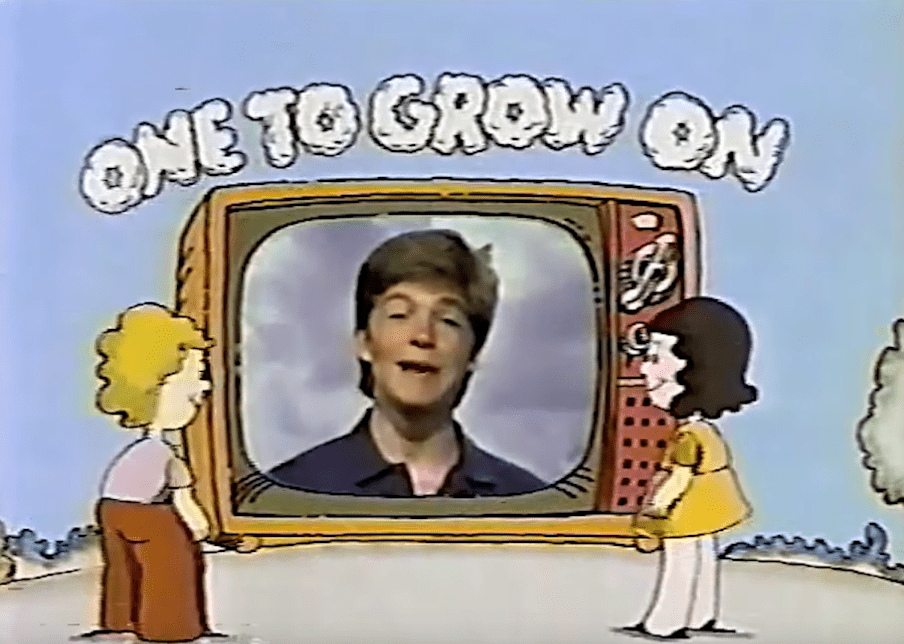 One to Grow On (1983–1989), NBC
One to Grow On (1983–1989), NBC
12. Hulkamania
When WWF wrestling was at the height of its popularity, Hulk Hogan became the face of the company. His popularity continued through the ‘80s and early ‘90s, and he was considered to be a good role model for kids in that he encouraged kids to say their prayers, take their vitamins, and to eat their vegetables. His theme song was “Real American Hero”, and like the song, he believed in truth, justice, and the American way.
11.Girls Just Want to Have Fun
In 1983, Cyndi Lauper released the single “Girls Just Wanna Have Fun.” It reached #2 on the US Billboard Top 100 and was popular throughout the world. The song became a feminist anthem and was one of the first videos to feature diverse girls. Lauper later said of the video: “The one thing I really wanted was to have multi-racial girls so that every little girl could actually see herself in it, and it would be kind of contagious that everyone was entitled—no matter what race or color or anything—you were entitled to this joyful experience,”
10. E.T. Phone Home
E.T. the Extra-Terrestrial was released in 1982 and has since become a classic movie for kids. The movie about the friendship that developed between a young boy and a stranded alien, and his attempt to find a way home was the highest grossing movie of the year. One of the most iconic scenes from the movie is when E.T. makes the kids’ bikes fly and is a popular ride at Universal Studios in Orlando. The film also spawned many quotable lines, including “be good” and “E.T. phone home.”
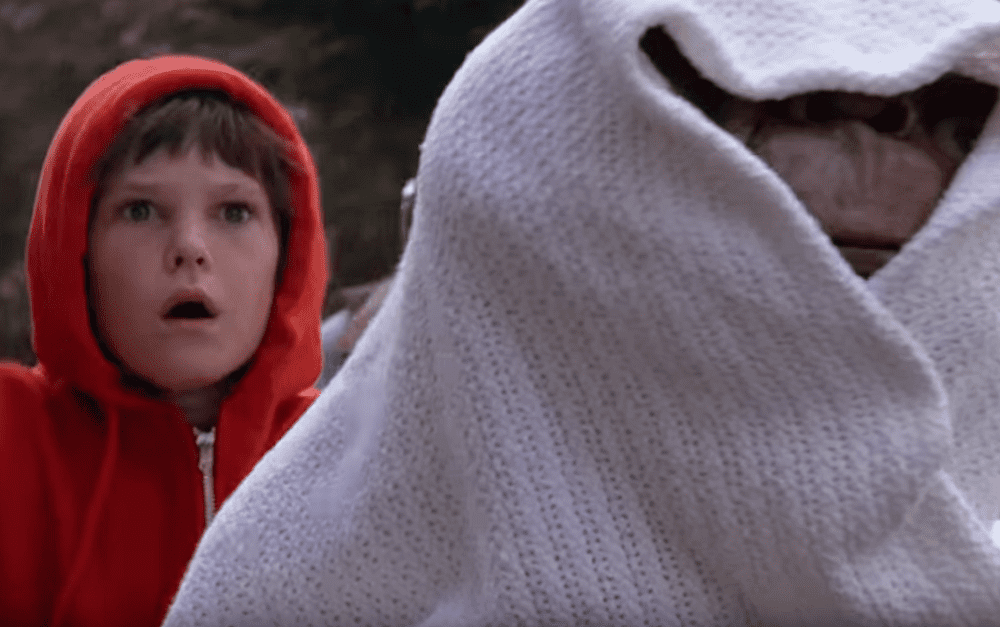 E.T. the Extra-Terrestrial (1982), Universal Pictures
E.T. the Extra-Terrestrial (1982), Universal Pictures
9. Boy Bands of the ‘80s
Each generation has its own mega-popular boy band, and ‘80s kids were no exception. The group New Kids on the Block was a boy band from Boston and consisted of five members, including the Knight brothers, Joey McIntyre, and Donnie Wahlberg. The boys released their first self-titled album in 1986 but didn’t get a hit until 1988 with their single “Please Don’t Go Girl.” By 1990, they were one of the most popular bands in the United States. In 2007, the group reunited to record another album and went on tour with their ‘90s equivalents, the Backstreet Boys.
8. USA for Africa
“We Are the World” was a song produced to benefits the victims of famine in Africa and raised over $60 million for relief. The song was co-written by Michael Jackson and Lionel Richie and was produced by Quincy Jones. As word of the effort spread, many popular ‘80s music stars signed on, including Bruce Springsteen, Billy Joel, Bob Dylan, and Ray Charles. On April 5, 1985, numerous radio stations played the song simultaneously at 10:50 am EST.
7. Professor Plum in the Library with the Candlestick
In 1985, the movie Clue brought the murder-mystery board game of the same name to the big screen, and contained three possible endings, with each ending being shown in different theatres. The Video version contains all three endings, but the DVD goes one step further in allowing viewers to play it with a randomly selected ending. Many of the details in the films kept with the original board game, like how the secret passages all led to their board game counterparts. It was the first movie to be based on a board game.
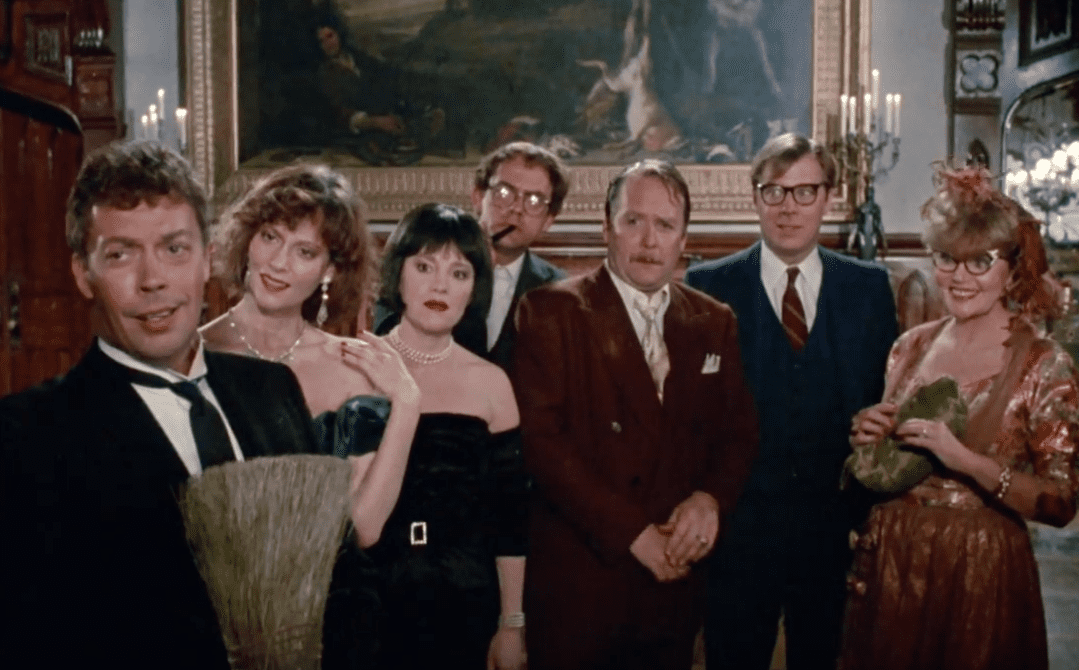 Clue (1985), Paramount Pictures
Clue (1985), Paramount Pictures
6.Space Shuttle Disaster
The NASA space shuttle Challenger explosion occurred 73 seconds after lift-off on January 28, 1986. All seven astronauts on board were killed, including the first civilian passenger Christa McAuliffe who was a teacher from New Hampshire. The liftoff was broadcast live on television, which meant that the tragic disaster was witnessed by the millions of people who had tuned in to watch.
5.Material Girl
Pop’s reigning Queen Madonna burst onto the music scene in 1981, and quickly became an international sensation. Her manager Camille Barbone helped her break into in a male-dominated industry, and the song “Like a Virgin” from her second album hit #1 on the Billboard charts and went platinum in the first month. The Song “Material Girl” was one of the other three hits she had from the same album. She set fashion trends with her crop tops, stacked rubber bracelets, and lace gloves, and she had a profound impact on teenage girls in the ‘80s.
4. Acid Wash Jeans
Acid washing jeans and jackets was an ‘80s clothing style that involved using chemicals to strip the first layer of color off of jeans, making them look faded. Dark Navy denim jeans were the most popular choice for acid washing, but they were also available in black, and other colors. Jean jackets, purses, and skirts also became popular during the ‘80s.
3. Just Say No!
As part of the US government’s war on drugs in the ‘80s, First Lady Nancy Reagan launched the “Just Say No” campaign. The campaign encouraged children to say no to drugs, and she appeared on television and around the country to promote the movement. Statistics from the campaign show that the number of Americans using drugs was significantly reduced in the decade that the campaign ran.
2. Inconceivable!
In 1987, the Princess Bride accomplished something that few other fantasy movies of the time had been able to. It managed to be silly, funny, and smart, and be enjoyed by the entire family—not just by kids. Based on the book by William Goldman, it is a timeless story with classic fairy tale elements. It is also one of the most quotable movies of all time, and few kids who grew up in the ‘80s don’t know the lines “Inconceivable!” “As you wish,” or “My name is Inigo Montoya. You killed my father—prepare to die!”
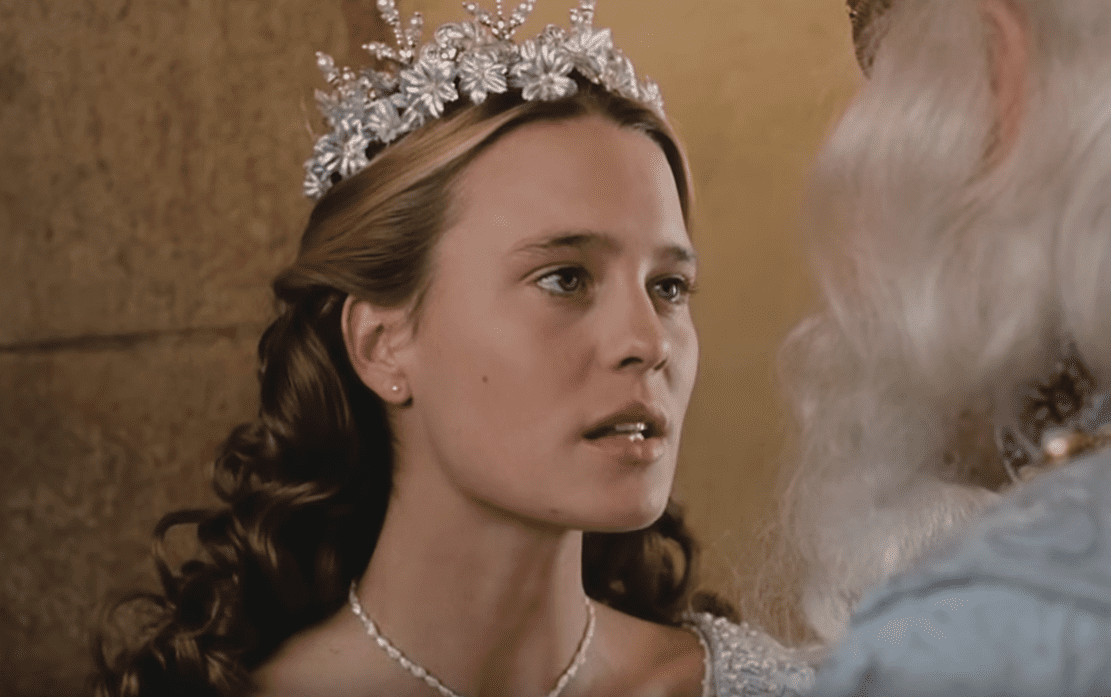 The Princess Bride (1987), Twentieth Century Fox
The Princess Bride (1987), Twentieth Century Fox
1. Video Killed The Radio Star
The popular music channel MTV first came on the air in 1981 and featured music videos, and music-oriented news programs hosted by VJs or video jockeys 24 hours a day, seven days a week. Music videos quickly became a hit, and in 1984, MTV held its first MTV Video Music Awards and continued to expand its popularity throughout the ‘80s. The first video shown on the station was “Video Killed the Radio Star” by the Buggles.
Sources: 1, 2, 3, 4, 5, 6, 7, 8, 9, 10, 11, 12, 13, 14, 15, 16, 17, 18, 19, 20, 21, 22, 23, 24, 25, 26, 27, 28, 29, 30, 31, 32, 33, 34, 35, 36, 37, 38, 39, 40, 41, 42, 43, 44, 45, 46, 47

